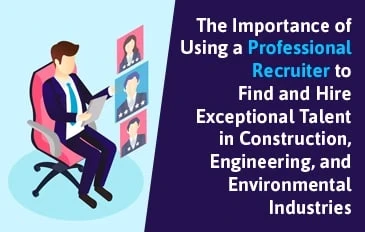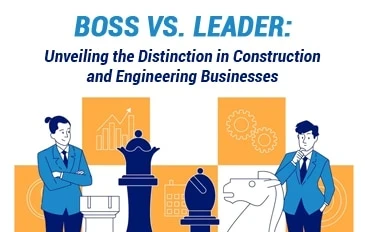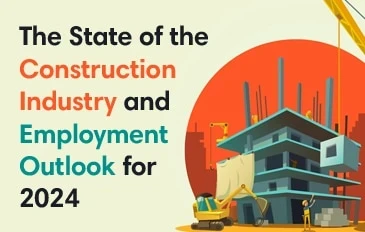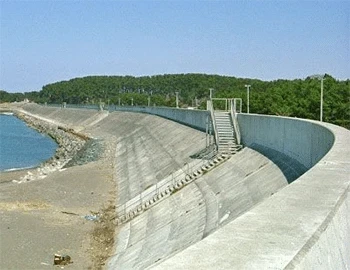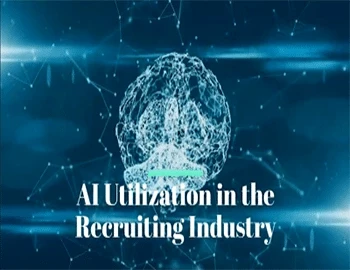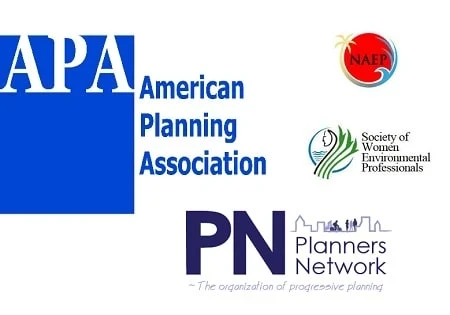Michael DeSafey | Executive Recruiter and HR Professional
Understanding the Crucial Role of Cultural Fit in Engineering Staffing Placements
Finding the right engineering talent goes beyond merely matching skills with job requirements. While technical prowess is undoubtedly important, a factor often overlooked yet equally vital is cultural fit. The importance of cultural fit in engineering staffing placements cannot be overstated, as it directly impacts team dynamics, productivity, employee satisfaction, and ultimately, the success of projects and organizations as a whole.
Understanding Cultural Fit
Cultural fit refers to the alignment between an individual’s values, behaviors, and work style with those of the organization they are joining. It encompasses shared beliefs, attitudes, and norms that define the work environment and organizational culture. In the context of engineering staffing, cultural fit involves assessing how well a candidate’s professional identity aligns with the values, goals, and working methods of the engineering team and the broader organization.
The Impact of Cultural Fit
-
Team Dynamics: Engineering is often a collaborative endeavor, requiring seamless coordination among team members. When individuals share common values and work styles, communication flows more smoothly, conflicts are reduced, and teams can achieve higher levels of synergy and productivity.
-
Employee Satisfaction and Retention: Employees who feel like they belong and are valued within their organization are more likely to be satisfied with their jobs and remain loyal in the long term. A positive cultural fit fosters a sense of belonging, leading to higher job satisfaction, lower turnover rates, and ultimately, cost savings for the organization.
-
Innovation and Creativity: Diverse perspectives are crucial for innovation. However, cultural fit does not mean homogeneity; rather, it implies a shared vision and mutual respect for differences. When team members feel comfortable expressing their ideas and challenging the status quo, it cultivates an environment conducive to creativity and innovation.
-
Organizational Performance: Cultural fit influences overall organizational performance. A cohesive team aligned with the organization’s values and objectives is better equipped to tackle challenges, adapt to changes, and drive success. In contrast, a lack of cultural fit can lead to friction, inefficiencies, and ultimately, project failures.
Assessing Cultural Fit in Engineering Staffing
-
Define Organizational Culture: Before assessing cultural fit, organizations must first define their own culture. This involves identifying core values, norms, and behaviors that characterize the workplace environment. Understanding what makes the organization unique lays the foundation for evaluating cultural fit in potential hires.
-
Behavioral Interviewing: Traditional interviews often focus on technical skills and experience. However, incorporating behavioral interviewing techniques can provide insights into a candidate’s cultural fit. By asking questions that probe into past experiences, teamwork, problem-solving approaches, and values alignment, interviewers can gauge how well candidates would integrate into the existing team and culture.
-
Assessment Tools: Various assessment tools and personality tests can aid in evaluating cultural fit. These tools provide quantitative data on aspects such as communication style, work preferences, and team roles, which can complement qualitative assessments during the hiring process.
-
Trial Periods and Cultural Onboarding: Offering trial periods or project-based engagements allows both parties to assess cultural fit in a real-world setting. Additionally, investing in cultural onboarding programs ensures that new hires are introduced to the organization’s values, norms, and expectations from the outset, facilitating smoother integration into the team.
Overcoming Challenges in Cultural Fit Assessment
-
Biases and Assumptions: Unconscious biases can influence perceptions of cultural fit, leading to overlooking qualified candidates from diverse backgrounds. To mitigate bias, hiring teams must undergo training on recognizing and addressing biases throughout the recruitment process.
-
Balancing Diversity and Fit: While cultural fit is important, it should not be used as a pretext for hiring individuals who conform to a single mold. Embracing diversity enriches teams and fosters innovation. Organizations must strike a balance between cultural fit and diversity to build inclusive and high-performing engineering teams.
-
Evolution of Culture: Organizational culture is not static; it evolves over time in response to internal and external factors. As such, cultural fit should be periodically reassessed to ensure alignment with the organization’s evolving values and goals.
Case Studies: Cultural Fit in Action
Thompson Engineering: By prioritizing cultural fit in its engineering staffing activities, the company saw a significant improvement in team cohesion and productivity. Through targeted recruitment strategies and cultural onboarding initiatives, they successfully built a workforce that thrived within the organization’s collaborative and innovative culture. They also recognized the importance of diversity in driving innovation but struggled to balance it with cultural fit. By implementing structured cultural fit assessments and diversity initiatives, they transformed their engineering team into a diverse yet cohesive unit, resulting in breakthroughs in product development and market expansion.
In the fast-paced and dynamic world of engineering, technical skills alone are insufficient for success. Cultural fit plays a pivotal role in shaping team dynamics, driving innovation, and fostering organizational performance. By prioritizing cultural fit in engineering staffing placements, organizations can build cohesive, high-performing teams capable of tackling challenges and achieving their objectives in an ever-evolving landscape.
Webuild Staffing Agency is a leading executive search and staffing agency dedicated to the construction, engineering and environmental industries. To learn more please visit: www.webuildstaffing.com
Ensuring Compliance and Quality Assurance in Engineering Staffing
Ensuring compliance and quality assurance are paramount for both companies and engineering professionals. With the intricate web of regulations, evolving technologies, and diverse project requirements, the landscape demands a strategic approach to staffing that goes beyond mere recruitment.
Understanding Compliance and Quality Assurance in Engineering Staffing:
Compliance in engineering staffing encompasses various facets, including legal regulations, industry standards, and organizational policies. These regulations often vary depending on factors such as geographic location, industry sector, and project specifications. At its core, compliance ensures that staffing processes adhere to laws such as equal employment opportunity (EEO), labor standards, and immigration regulations. Failure to comply can lead to legal repercussions, reputational damage, and operational disruptions.
Key Challenges in Ensuring Compliance: Navigating compliance in engineering staffing presents several challenges. Firstly, the complex legal landscape requires a deep understanding of regulations across different jurisdictions. Additionally, maintaining compliance while meeting project deadlines and client expectations can be a delicate balancing act. Moreover, ensuring diversity and inclusion in staffing practices adds another layer of complexity, especially in traditionally male-dominated fields like engineering.
Strategies for Ensuring Compliance:
-
Robust Compliance Training: Implementing comprehensive training programs ensures that staff are well-versed in relevant regulations and company policies. Regular updates and refresher courses are essential to stay abreast of changes in the legal landscape.
-
Transparent Documentation: Accurate record-keeping of staffing processes, including recruitment, selection criteria, and performance evaluations, facilitates compliance audits and mitigates legal risks.
-
Partnering with Legal Experts: Collaborating with legal professionals specializing in labor and employment law provides valuable insights and ensures that staffing practices align with current regulations.
-
Utilizing Technology: Leveraging software solutions for applicant tracking, background checks, and compliance monitoring streamlines processes and reduces the risk of human error.
Quality Assurance in Engineering Staffing: Quality assurance (QA) in engineering staffing focuses on ensuring that professionals possess the requisite skills, experience, and qualifications to meet project requirements effectively. It encompasses thorough candidate assessment, ongoing performance evaluation, and continuous improvement initiatives. By prioritizing QA, organizations can mitigate project risks, enhance client satisfaction, and maintain a competitive edge in the market.
Challenges in Maintaining Quality Assurance: Despite its importance, maintaining QA in engineering staffing presents its own set of challenges. Firstly, identifying and attracting top talent with specialized skills and experience can be a daunting task, particularly in niche fields. Moreover, ensuring a cultural fit between candidates and the organization adds complexity to the selection process. Additionally, retaining high-performing talent in a competitive market requires strategic incentives and professional development opportunities.
Strategies for Ensuring Quality Assurance:
-
Comprehensive Skills Assessment: Conducting thorough technical assessments and competency-based interviews enables organizations to gauge candidates’ proficiency and suitability for specific roles.
-
Performance Metrics and Feedback: Establishing clear performance metrics and providing regular feedback to staff fosters accountability and continuous improvement.
-
Talent Development Initiatives: Investing in training and professional development programs not only enhances employees’ skills but also promotes loyalty and retention.
-
Client Feedback Mechanisms: Soliciting feedback from clients regarding staff performance and project outcomes provides valuable insights for refining staffing strategies and enhancing service quality.
Integration of Quality Assurance:
Integrating compliance and quality assurance efforts is essential for optimizing engineering staffing practices. By aligning recruitment processes with legal requirements and industry standards, organizations can mitigate risks, ensure regulatory compliance, and deliver high-quality services to clients. Moreover, fostering a culture of accountability, transparency, and continuous improvement reinforces the importance of compliance and QA across the organization.
In the fast-paced world of engineering staffing, ensuring compliance and quality assurance is a multifaceted endeavor that requires a strategic approach and ongoing commitment. By understanding the regulatory landscape, addressing key challenges, and implementing best practices, organizations can navigate the complexities of staffing while maintaining legal compliance and delivering exceptional service quality. As technology advances and industry dynamics evolve, staying adaptable and proactive is essential for success in engineering staffing.
Webuild Staffing Agency is a leading executive search and staffing agency dedicated to the construction, engineering and environmental industries. To learn more please visit: www.webuildstaffing.com
Upskilling and Reskilling Engineers: Investing in Future-Proof Talent
The demand for skilled engineers continues to surge. However, the skill sets required in the engineering field are constantly shifting, driven by advancements in technology, changes in industry needs, and emerging trends. As a result, there’s a growing emphasis on upskilling and reskilling engineers to ensure they remain relevant and competitive in their careers.
This article delves into the importance of investing in the upskilling and reskilling of engineers, the benefits it offers to both individuals and organizations, and effective strategies for implementing such initiatives.
The Need for Upskilling and Reskilling Engineers
Engineering is a dynamic field where innovation is the norm. With the advent of technologies like artificial intelligence (AI), machine learning, blockchain, and the Internet of Things (IoT), the skill sets required to excel in engineering roles are constantly evolving. Moreover, traditional engineering disciplines are intersecting with other domains, creating a need for interdisciplinary skills.
One of the primary drivers behind the need for upskilling and reskilling engineers is the rapid pace of technological advancement. Engineers must stay abreast of the latest tools, techniques, and methodologies to remain effective in their roles. Additionally, as industries undergo digital transformation, there’s a growing demand for engineers with expertise in areas such as data science, cybersecurity, and cloud computing.
Furthermore, the COVID-19 pandemic has accelerated the adoption of remote work and digital technologies, emphasizing the importance of digital literacy and adaptability among engineers. As companies embrace remote collaboration tools and digital workflows, engineers need to be proficient in leveraging these technologies to stay productive and connected.
Benefits of Upskilling and Reskilling Engineers
Investing in the upskilling and reskilling of engineers yields numerous benefits for both individuals and organizations.
-
Enhanced Competitiveness: Engineers who continuously update their skills remain competitive in the job market. They are better equipped to tackle new challenges and contribute to innovation within their organizations.
-
Increased Productivity: Upskilling and reskilling initiatives improve the efficiency and productivity of engineering teams. Engineers with updated skill sets can accomplish tasks more effectively, leading to improved project outcomes and faster time-to-market.
-
Employee Retention: Providing opportunities for professional growth and development through upskilling and reskilling programs can boost employee morale and loyalty. Engineers are more likely to stay with organizations that invest in their career advancement.
-
Future-Proofing Talent: By staying ahead of technological trends and acquiring in-demand skills, engineers future-proof their careers. They remain valuable assets to their organizations, even as job roles evolve and new technologies emerge.
-
Innovation and Creativity: Upskilling and reskilling foster a culture of innovation within engineering teams. Engineers with diverse skill sets are more likely to generate novel ideas and solutions, driving organizational innovation.
Strategies for Implementing Upskilling and Reskilling Initiatives
To effectively upskill and reskill engineers, organizations can adopt several strategies:
-
Identify Skill Gaps: Conduct comprehensive assessments to identify existing skill gaps within the engineering workforce. This can be done through surveys, interviews, or skills assessments.
-
Tailored Training Programs: Develop customized training programs that address the specific skill needs identified. These programs can include online courses, workshops, seminars, and hands-on training sessions.
-
Encourage Continuous Learning: Foster a culture of continuous learning within the organization. Encourage engineers to pursue certifications, attend conferences, and participate in online learning platforms to stay updated on industry trends and advancements.
-
Provide Mentorship and Coaching: Pair engineers with mentors who can provide guidance and support as they acquire new skills. Mentorship programs facilitate knowledge transfer and help junior engineers develop professionally.
-
Promote Cross-Functional Collaboration: Encourage collaboration between engineering teams and other departments. This enables engineers to gain exposure to different perspectives and learn from colleagues with diverse backgrounds.
-
Measure and Evaluate: Establish metrics to measure the effectiveness of upskilling and reskilling initiatives. Monitor progress, gather feedback from participants, and make adjustments as needed to optimize the programs.
In today’s fast-paced and technology-driven world, investing in the upskilling and reskilling of engineers is imperative for organizations looking to remain competitive and innovative. By providing opportunities for professional growth and development, companies can empower their engineering talent to thrive in an ever-changing landscape. With the right strategies and initiatives in place, organizations can build a future-proof workforce capable of driving success in the digital age.
Webuild Staffing Agency is a leading executive search and staffing agency dedicated to the construction, engineering and environmental industries. To learn more please visit: www.webuildstaffing.com
Staffing Agencies: Roles In Fostering Innovation
Innovation is the lifeblood of progress, it’s the driving force behind breakthroughs that shape our future. However, the journey from concept to reality demands not just brilliant minds but also the right ecosystem. In this ecosystem, engineering staffing agencies emerge as silent yet pivotal players, bridging the gap between talent and opportunity.
Understanding Engineering Staffing Agencies:
Engineering staffing agencies act as intermediaries connecting skilled professionals with organizations seeking their expertise. Beyond merely matching resumes with job descriptions, these agencies serve as strategic partners, understanding the nuanced requirements of both candidates and companies.
-
Cultivating Diverse Talent Pools: Innovation thrives in diversity. Engineering staffing agencies play a crucial role in fostering innovation by curating diverse talent pools. They transcend geographical boundaries, sourcing talent globally, which brings varied perspectives and approaches to problem-solving. By embracing diversity in skills, experiences, and backgrounds, these agencies enrich the talent landscape, fostering creativity and innovation.
-
Agility in Talent Acquisition: The pace of technological evolution demands agility in talent acquisition. Engineering staffing agencies are adept at swiftly identifying and deploying skilled professionals, ensuring that projects progress unhindered. Their extensive networks and streamlined processes enable companies to scale teams up or down as per project requirements, enhancing flexibility and adaptability, key ingredients for innovation.
-
Nurturing Specialized Expertise: Innovation often sprouts from specialized knowledge and expertise. Engineering staffing agencies specialize in niche domains, from AI and machine learning to renewable energy and aerospace engineering. By focusing on these specialized areas, they attract top talent and facilitate the convergence of expertise, creating fertile grounds for innovation to flourish.
-
Facilitating Cross-Pollination of Ideas: Collaboration breeds innovation. Engineering staffing agencies serve as catalysts for cross-pollination of ideas by facilitating collaborations between diverse talent pools and organizations. Through temporary placements, contract-to-hire arrangements, or project-based engagements, they enable professionals to work across industries and domains, fostering the exchange of insights and best practices.
-
Promoting a Culture of Lifelong Learning: Innovation is not a destination but a journey fueled by continuous learning. Engineering staffing agencies prioritize professional development, offering training programs, workshops, and skill enhancement initiatives. By empowering professionals to upskill and reskill, they cultivate a culture of lifelong learning, essential for staying ahead in a rapidly evolving technological landscape.
-
Mitigating Risk Through Talent Vetting: Innovation inherently involves risk, but it’s essential to mitigate it where possible. Engineering staffing agencies play a vital role in risk mitigation by rigorously vetting candidates for technical proficiency, cultural fit, and reliability. By conducting thorough background checks and reference verifications, they ensure that organizations onboard talent with the right blend of skills and values, minimizing the risk of project derailment.
-
Enabling Rapid Prototyping and Iteration: Innovation thrives on experimentation and iteration. Engineering staffing agencies facilitate rapid prototyping and iteration by providing access to a pool of professionals skilled in agile methodologies, design thinking, and rapid development frameworks. By assembling dynamic teams capable of swiftly translating ideas into prototypes, they accelerate the innovation lifecycle, driving tangible outcomes.
-
Supporting Startups and SMEs: Startups and SMEs often face resource constraints that can impede innovation. Engineering staffing agencies offer tailored solutions to support these enterprises, ranging from flexible staffing models to strategic consulting services. By providing access to talent on-demand and strategic guidance, they empower startups and SMEs to innovate and compete on a level playing field with larger counterparts.
-
Bridging the Skills Gap: The widening skills gap poses a significant challenge to innovation. Engineering staffing agencies actively contribute to bridging this gap by identifying emerging skill requirements and aligning talent development initiatives accordingly. By partnering with educational institutions and industry bodies, they foster collaboration to address the evolving needs of the engineering workforce, ensuring a steady pipeline of skilled professionals.
-
Embracing Technological Disruption: Innovation is intrinsically linked to technological disruption. Engineering staffing agencies embrace technological advancements to enhance their service offerings. From AI-driven talent matching algorithms to virtual recruitment platforms, they leverage cutting-edge technologies to streamline processes, improve efficiency, and deliver superior outcomes for both candidates and clients.
Innovation is not a solitary endeavor but a collective journey fueled by collaboration, diversity, and a conducive ecosystem. Engineering staffing agencies embody this ethos, serving as enablers and accelerators of innovation. Through their relentless pursuit of talent, agility, and excellence, they catalyze the transformational ideas that shape the future of engineering and propel humanity forward. As we navigate the complexities of the digital age, the role of engineering staffing agencies in fostering innovation remains indispensable, underscoring their significance as evolutionary catalysts in the ever-evolving landscape of engineering and technology.
Webuild Staffing Agency is a leading executive search and staffing agency dedicated to the construction, engineering and environmental industries. To learn more please visit: www.webuildstaffing.com
The Key to Finding the Right Talent for Specialized Engineering Projects
Where innovation is the cornerstone of progress, specialized engineering roles play a pivotal role in bringing groundbreaking ideas to life. These niche projects demand not only technical prowess but also a deep understanding of specific domains. However, finding the right specialized engineering talent for such specialized engineering projects can be akin to searching for a needle in a haystack.
Understanding Specialized Engineering Projects and Roles
Specialized engineering projects have a number of roles that encompass a spectrum of disciplines tailored to address unique challenges and opportunities. From aerospace engineering to biotechnology, these roles require specialized knowledge, skills, and experience. Let’s explore some common categories:
-
Aerospace Engineering: Aerospace engineers design, develop, and test aircraft, spacecraft, and missiles. They possess expertise in aerodynamics, propulsion systems, and materials science.
-
Biomedical Engineering: Biomedical engineers merge principles of engineering and biology to develop innovative medical devices, equipment, and procedures. Their work spans areas such as prosthetics, medical imaging, and tissue engineering.
-
Renewable Energy Engineering: Renewable energy engineers focus on harnessing sustainable energy sources like solar, wind, and hydroelectric power. They design and optimize systems for maximum efficiency and environmental impact.
-
Robotics Engineering: Robotics engineers create intelligent machines capable of performing complex tasks autonomously or semi-autonomously. Their expertise encompasses mechanical design, artificial intelligence, and control systems.
-
Cybersecurity Engineering: Cybersecurity engineers safeguard digital systems and networks from malicious attacks and breaches. They develop robust security protocols, conduct vulnerability assessments, and mitigate risks.
Challenges in Finding Specialized Engineering Projects Talent
While specialized engineering projects and roles are critical for pushing the boundaries of innovation, recruiting talent for niche projects poses several challenges:
-
Limited Talent Pool: Specialized fields often have a limited pool of qualified candidates due to the niche nature of the expertise required.
-
Competitive Landscape: Top-tier professionals in specialized roles are in high demand, leading to intense competition among employers to attract and retain talent.
-
Complex Skill Requirements: Specialized engineering roles demand a diverse skill set, including technical proficiency, domain-specific knowledge, and problem-solving abilities.
-
Cost Considerations: Hiring for specialized roles can be costly, requiring investment in recruitment efforts, competitive salaries, and ongoing training and development.
Strategies for Finding the Right Talent
Despite the challenges, organizations can adopt strategic approaches to identify and recruit top talent for niche projects:
-
Establish Clear Job Requirements: Define specific skill sets, qualifications, and experience levels required for the role. Clearly articulate the technical and domain-specific competencies to attract candidates with the right expertise.
-
Utilize Niche Job Boards and Platforms: Leverage specialized job boards, online communities, and professional networks tailored to the respective engineering domain. These platforms attract candidates with niche skill sets and interests.
-
Engage with Industry Experts and Thought Leaders: Connect with industry experts, thought leaders, and professionals within the specialized field. Attend conferences, workshops, and networking events to build relationships and gain insights into emerging trends and talent pools.
-
Offer Competitive Compensation and Benefits: Incentivize top talent by offering competitive salaries, bonuses, and benefits packages. Highlight opportunities for professional growth, skill development, and career advancement within the organization.
-
Invest in Employer Branding and Recruitment Marketing: Showcase your organization’s commitment to innovation, technology, and career development through compelling employer branding initiatives. Develop targeted recruitment marketing campaigns to attract passive candidates and showcase the impact of niche projects.
-
Implement Robust Screening and Assessment Processes: Develop rigorous screening and assessment processes to evaluate candidates’ technical proficiency, problem-solving skills, and cultural fit. Utilize technical assessments, case studies, and behavioral interviews to gauge candidates’ suitability for the role.
-
Foster a Culture of Continuous Learning and Development: Create a supportive environment that encourages continuous learning, knowledge sharing, and skill development. Invest in training programs, mentorship initiatives, and professional certifications to enhance employees’ expertise and capabilities.
Case Studies: Success Stories in Recruiting Specialized Engineering Projects Talent
Let’s explore real-world examples of organizations that have successfully recruited specialized talent for specialized engineering projects:
-
SpaceX: SpaceX, founded by Elon Musk, has assembled a team of aerospace engineers and rocket scientists dedicated to advancing space exploration and technology. Their innovative approach to talent acquisition and retention has propelled the company to the forefront of the aerospace industry.
-
Johnson & Johnson: Johnson & Johnson’s biomedical engineering division is renowned for its development of life-saving medical devices and technologies. By fostering partnerships with leading research institutions and universities, they attract top talent in the biomedical engineering field.
-
Google X: Google X, the secretive research and development lab of Alphabet Inc., recruits top engineers, scientists, and technologists to work on moonshot projects aimed at solving global challenges. Their interdisciplinary approach and focus on audacious goals attract diverse talent from around the world.
Conclusion
In the ever-evolving landscape of engineering, specialized roles play a crucial role in driving innovation, pushing boundaries, and solving complex challenges. However, finding the right talent for niche projects requires strategic planning, proactive recruitment efforts, and a deep understanding of the respective domain. By implementing the strategies outlined in this guide and learning from successful case studies, organizations can attract and retain top-tier talent capable of delivering groundbreaking results in specialized engineering roles.
Webuild Staffing Agency is a leading executive search and staffing agency dedicated to the construction, engineering and environmental industries. To learn more please visit: www.webuildstaffing.com
Remote Engineering: Adapting to the New Normal with a Staffing Solutions Provider
The world of engineering has undergone a seismic shift in recent years, catalyzed by technological advancements and the global pandemic. Remote engineering, once a novelty, has become the new standard. This transformation has prompted companies to reassess their staffing strategies, seeking innovative remote engineering solutions to adapt to this new normal. Lets delve into the realm of remote engineering and explore the staffing solutions that are driving success in this evolving landscape.
The Rise of Remote Engineering:
The concept of remote work is not new, but its widespread adoption in the engineering sector is relatively recent. The COVID-19 pandemic forced companies to embrace remote work as a necessity rather than a choice. As lockdowns were imposed worldwide, engineers had to quickly pivot to working from home, leveraging digital tools and communication platforms to collaborate effectively.
Despite initial challenges, remote engineering has proven to be remarkably successful. Engineers have demonstrated their ability to maintain productivity and innovation outside traditional office environments. Companies have also reaped the benefits, including reduced overhead costs, access to a global talent pool, and improved work-life balance for employees.
However, the transition to remote engineering hasn’t been without its hurdles. Technical issues, communication barriers, and concerns about data security have posed significant challenges for both engineers and employers. To navigate these challenges successfully, companies are turning to innovative staffing solutions tailored to the demands of remote work.
Staffing Solutions for Remote Engineering:
-
Flexible Hiring Practices: Traditional hiring practices are giving way to more flexible models that accommodate remote work. Companies are increasingly embracing freelance, contract, and remote-first hiring approaches to access specialized talent without geographical limitations. This allows organizations to scale their engineering teams according to project requirements while tapping into a diverse pool of expertise.
-
Virtual Collaboration Tools: Effective collaboration is essential for remote engineering teams to thrive. Companies are investing in virtual collaboration tools such as Slack, Microsoft Teams, and Zoom to facilitate real-time communication, project management, and knowledge sharing. These platforms enable seamless collaboration across distributed teams, fostering creativity and innovation regardless of physical location.
-
Remote Onboarding and Training: Onboarding and training are critical components of integrating new engineers into remote teams. Companies are adopting virtual onboarding processes that include comprehensive orientation sessions, mentorship programs, and access to online resources. By providing remote engineers with the necessary tools and support from day one, organizations can accelerate their integration and maximize productivity.
-
Emphasis on Communication Skills: Effective communication is the cornerstone of remote engineering success. Companies are prioritizing communication skills during the hiring process and providing ongoing training to enhance remote communication proficiency. Clear communication channels, regular check-ins, and transparent feedback mechanisms are essential for fostering collaboration and building trust within remote teams.
-
Cybersecurity Measures: With remote work comes increased cybersecurity risks. Companies are implementing robust cybersecurity measures to protect sensitive data and infrastructure from potential threats. This includes end-to-end encryption, multi-factor authentication, and regular security audits to identify and address vulnerabilities proactively. By prioritizing cybersecurity, companies can ensure the integrity and confidentiality of their engineering operations in remote environments.
-
Cultural Adaptation: Remote engineering requires a cultural shift within organizations to embrace autonomy, flexibility, and trust. Companies are fostering a remote-friendly culture that values outcomes over hours worked and encourages work-life balance. This includes implementing flexible work schedules, promoting virtual team-building activities, and recognizing and rewarding remote contributions. By nurturing a supportive remote culture, companies can foster employee engagement and retention in a distributed work environment.
Case Study:
-
GitHub: GitHub, a leading software development platform, has embraced remote work as part of its company culture for years. By prioritizing asynchronous communication and collaboration tools, GitHub enables its global engineering team to work effectively across different time zones. The company’s remote-first approach has not only attracted top talent but also fostered a culture of innovation and inclusivity.
Remote engineering has emerged as a defining characteristic of the modern workplace, offering unparalleled flexibility, efficiency, and access to talent. As companies adapt to this new normal, innovative staffing solutions play a crucial role in driving success in remote engineering environments. By embracing flexible hiring practices, leveraging virtual collaboration tools, prioritizing communication skills, enhancing cybersecurity measures, fostering cultural adaptation, and learning from industry leaders, companies can thrive in the era of remote engineering and continue to innovate in a rapidly evolving landscape.
Webuild Staffing Agency is a leading executive search and staffing agency dedicated to the construction, engineering and environmental industries. To learn more please visit: www.webuildstaffing.com
Fostering Diversity: Expert Strategies for Engineering Staffing Agencies
Diversity is not just a buzzword but a crucial element for building innovative and successful engineering teams. Staffing agencies play a pivotal role in fostering diversity and shaping these teams, serving as the bridge between talent and organizations. However, the challenge lies in ensuring diversity within these teams, encompassing various perspectives, backgrounds, and skill sets. This explores strategies for staffing agencies to effectively build and nurture diverse engineering teams, fostering innovation and excellence.
Understanding the Importance of Fostering Diversity in Engineering Teams: Diversity in engineering teams brings a plethora of benefits, including:
- Enhanced innovation and creativity through varied perspectives.
- Improved problem-solving by considering a wide range of solutions.
- Better decision-making through diverse insights and experiences.
- Increased employee satisfaction and retention by promoting inclusivity.
- Enhanced adaptability to global markets and customer needs.
By acknowledging these benefits, staffing agencies can prioritize diversity as a core component of their recruitment strategies.
Identifying Barriers to Fostering Diversity: Before addressing diversity, it’s crucial to recognize the barriers that hinder its attainment:
- Unconscious bias in recruitment processes leading to homogeneous hires.
- Lack of inclusive company cultures that fail to retain diverse talent.
- Limited access to diverse talent pools due to systemic inequalities.
- Stereotypes and preconceptions about certain demographics’ abilities in STEM fields.
Staffing agencies must proactively address these barriers to create an inclusive environment for diverse engineering talent.
Implementing Inclusive Recruitment Practices: To attract diverse candidates, staffing agencies should adopt inclusive recruitment practices such as:
- Diversifying sourcing channels to reach underrepresented talent pools.
- Utilizing blind resume screening to mitigate unconscious bias.
- Implementing inclusive language in job descriptions to attract diverse applicants.
- Providing unconscious bias training to recruiters to promote fair evaluation.
- Partnering with diverse professional organizations and universities to tap into diverse talent pipelines.
Cultivating Inclusive Company Cultures: Staffing agencies should collaborate with client organizations to foster inclusive company cultures by:
- Advocating for diversity and inclusion initiatives within client companies.
- Promoting mentorship programs to support diverse hires in their career growth.
- Facilitating diversity training and workshops to raise awareness and foster empathy.
- Encouraging leadership to champion diversity efforts and hold teams accountable.
- Creating safe spaces for open dialogue and feedback on diversity-related issues.
Leveraging Technology in Fostering Diversity for Recruitment: Technology can be a powerful tool for enhancing diversity recruitment efforts by:
- Implementing AI-powered tools to remove bias from the recruitment process.
- Utilizing data analytics to identify diversity gaps and track progress.
- Incorporating virtual recruitment events to reach a broader and more diverse audience.
- Using collaboration platforms to facilitate remote work and accommodate diverse needs.
- Leveraging social media platforms to showcase inclusive company cultures and attract diverse talent.
Building Diverse Talent Pipelines: Staffing agencies can proactively build diverse talent pipelines by:
- Partnering with diversity-focused organizations and initiatives to access diverse talent pools.
- Offering scholarships, internships, and apprenticeships to underrepresented groups.
- Providing career development resources and networking opportunities for diverse candidates.
- Encouraging referrals from existing diverse talent within their networks.
- Investing in community outreach programs to engage with underrepresented demographics.
Measuring and Evaluating Diversity Initiatives: It’s essential for staffing agencies to measure the effectiveness of their diversity initiatives by:
- Establishing key performance indicators (KPIs) related to diversity and inclusion.
- Conducting regular diversity audits to assess progress and identify areas for improvement.
- Soliciting feedback from diverse candidates and employees to gauge satisfaction and engagement.
- Benchmarking against industry standards and best practices to stay competitive.
- Adjusting strategies based on data-driven insights to ensure continuous improvement.
Building a diverse engineering team is not just a moral imperative but a strategic advantage in today’s competitive landscape. Staffing agencies play a vital role in shaping these teams by implementing inclusive recruitment practices, fostering diversity in inclusive company cultures, leveraging technology, and building diverse talent pipelines. By prioritizing the fostering of diversity and inclusion, staffing agencies can drive innovation, enhance employee satisfaction, and contribute to a more equitable and prosperous future.
Embracing diversity isn’t just about meeting quotas; it’s about harnessing the power of varied perspectives and experiences to drive meaningful change and achieve collective success in the engineering field. Staffing agencies that embrace diversity as a core value will not only attract top talent but also create a more resilient and innovative workforce for the challenges of tomorrow.
Webuild Staffing Agency is a leading executive search and staffing agency dedicated to the construction, engineering and environmental industries. To learn more please visit: www.webuildstaffing.com
Overcoming Obstacles in Hiring Engineers in the Future
The engineering staffing industry is undergoing profound transformations. As industries digitize, automate, and innovate, the demand for skilled engineers continues to surge. To stay competitive, employers must understand and adapt to the latest trends shaping engineering staffing. From embracing remote work to prioritizing diversity and inclusion, navigating these shifts is paramount for success in hiring engineers.
Remote Work Revolution:
The COVID-19 pandemic accelerated the adoption of remote work across industries, including engineering. As companies adjusted to remote operations, they realized the benefits of accessing a global talent pool for hiring engineers, reducing overhead costs, and promoting work-life balance. Engineering firms are now leveraging remote work arrangements to attract top talent regardless of geographic location. Employers must invest in robust virtual collaboration tools and flexible work policies to effectively manage remote engineering teams and maintain productivity.
Skills Over Credentials:
Traditional hiring practices often prioritize candidates with prestigious degrees or certifications. However, the focus is shifting towards skills-based hiring engineers. Employers are recognizing that practical skills and hands-on experience are more indicative of a candidate’s ability to succeed in a role than academic credentials alone. Platforms like GitHub, where engineers showcase their coding projects, are becoming essential tools for evaluating technical proficiency. By emphasizing skills assessments and project-based interviews, employers can identify candidates who possess the expertise needed to drive innovation.
Diversity and Inclusion Initiatives:
Diversity and inclusion (D&I) are no longer optional but imperative for engineering teams. Research consistently shows that diverse teams outperform homogenous ones in creativity, problem-solving, and innovation. Employers are prioritizing D&I initiatives to cultivate a culture where individuals from diverse backgrounds feel valued and empowered to contribute their unique perspectives. Implementing blind hiring practices, establishing affinity groups, and providing unconscious bias training are effective strategies for fostering diversity and inclusion in hiring engineers.
Gig Economy Integration:
The gig economy, characterized by short-term contracts and freelance work, is reshaping the way engineers engage with employers. Many engineers are opting for freelance or contract positions to gain flexibility, autonomy, and exposure to diverse projects. Employers are tapping into this talent pool to access specialized skills for short-term projects or to supplement their existing teams during peak workloads. Embracing the gig economy allows employers to scale their engineering workforce rapidly and cost-effectively while providing opportunities for professionals seeking alternative work arrangements.
Artificial Intelligence in Recruitment:
Artificial intelligence (AI) is revolutionizing the recruitment process, enabling employers to streamline candidate sourcing, screening, and matching. AI-powered platforms use algorithms to analyze resumes, assess candidate suitability, and even conduct preliminary interviews. By automating routine tasks, AI frees up recruiters to focus on building relationships with candidates and evaluating cultural fit. However, employers must ensure that AI tools are trained on diverse datasets to mitigate bias and promote fairness in hiring decisions.
Upskilling and Reskilling Initiatives:
Technological advancements are constantly reshaping the skills required in the engineering workforce. To bridge the skills gap and future-proof their teams, employers are investing in upskilling and reskilling initiatives. From offering in-house training programs to subsidizing external courses and certifications, companies are empowering their employees to acquire new skills and stay abreast of emerging technologies. By prioritizing continuous learning and development, employers can retain top talent and remain competitive in the fast-paced engineering landscape.
Emphasis on Soft Skills:
While technical proficiency is essential, employers are increasingly recognizing the importance of soft skills in hiring engineers. Effective communication, teamwork, problem-solving, and adaptability are crucial for driving collaboration and innovation within engineering teams. Employers are evaluating candidates based on their interpersonal skills, emotional intelligence, and cultural fit in addition to their technical abilities. Incorporating behavioral assessments and situational interviews into the hiring process enables employers to assess a candidate’s soft skills more effectively.
Sustainable and Ethical Engineering Practices:
As sustainability and ethics become central concerns in today’s society, engineering firms are under pressure to prioritize environmental responsibility and ethical practices. Employers are hiring engineers who can develop solutions that minimize environmental impact, adhere to ethical standards, and uphold social responsibility. Demonstrating a commitment to sustainability and ethics not only enhances a company’s reputation but also attracts socially conscious engineers who align with its values.
In conclusion, staying abreast of the latest trends in engineering staffing is essential for employers looking to attract, retain, and develop top talent. From embracing remote work and skills-based hiring to prioritizing diversity and inclusion, navigating these trends requires a proactive and adaptive approach. By leveraging technology, fostering diversity and inclusion, and investing in continuous learning, employers can build dynamic engineering teams capable of driving innovation and success in an ever-evolving landscape.
Webuild Staffing Agency is a leading executive search and staffing agency dedicated to the construction, engineering and environmental industries. To learn more please visit: www.webuildstaffing.com
Sourcing Engineering Talent Through a Staffing Agency
Companies constantly seek innovative ways to optimize their operations, reduce costs, and enhance competitiveness. One such strategy gaining significant traction is sourcing engineering talent to staffing agencies. This approach offers numerous advantages, ranging from accessing specialized expertise to streamlining recruitment processes. In this comprehensive exploration, we delve into the multifaceted benefits of leveraging staffing agencies for engineering talent acquisition.
Access to Diverse Talent Pool
Staffing agencies cultivate extensive networks of engineering professionals with diverse skill sets and experiences. By tapping into these networks, companies gain access to a broader talent pool than they might find through traditional recruitment channels. Whether it’s software developers, mechanical engineers, or electrical technicians, staffing agencies can connect businesses with individuals possessing the precise expertise required for specific projects or roles.
Flexibility and Scalability
Sourcing engineering talent through staffing agencies offers unparalleled flexibility and scalability. Businesses can adjust their workforce according to fluctuating project demands, seasonal variations, or sudden growth spurts without the hassle of long-term commitments or the overhead costs associated with maintaining a full-time, in-house team. This agile approach enables organizations to adapt swiftly to market changes while optimizing resource utilization.
Cost Efficiency
Cost optimization is a perennial priority for businesses across industries. Sourcing engineering talent to staffing agencies presents a cost-effective solution compared to the expenses associated with in-house recruitment, training, benefits, and overhead. Staffing agencies assume responsibility for candidate sourcing, screening, and onboarding, streamlining the hiring process and reducing administrative burdens for client companies. Moreover, sourcing engineering talent with a staffing agency allows businesses to leverage competitive rates for specialized skills without incurring the overhead costs of maintaining full-time employees.
Focus on Core Competencies
By entrusting staffing agencies with sourcing engineering talent, companies can refocus internal resources on core competencies and strategic initiatives. Sourcing engineering talent non-core functions such as recruitment and workforce management enables organizations to allocate time, energy, and resources towards innovation, product development, and market expansion. This strategic realignment fosters business growth and enhances competitive advantage in a rapidly evolving marketplace.
Rapid Deployment of Expertise
Staffing agencies expedite the deployment of engineering talent, enabling companies to kickstart projects promptly and meet tight deadlines. Whether it’s a short-term assignment or a long-term engagement, staffing agencies excel at matching client requirements with qualified candidates, minimizing time-to-fill and ensuring project continuity. This rapid deployment of expertise empowers businesses to capitalize on emerging opportunities and stay ahead of the competition.
Mitigation of Recruitment Risks
Recruitment inherently involves risks such as talent mismatches, turnover, and skill shortages. Staffing agencies mitigate these risks by employing rigorous screening processes, conducting background checks, and verifying candidate credentials. Additionally, many staffing agencies offer temporary-to-permanent placements, allowing client companies to assess candidates’ performance before extending permanent employment offers. By outsourcing recruitment to specialized agencies, businesses can mitigate recruitment risks and ensure optimal workforce alignment.
Access to Specialized Skills and Technologies
In today’s technology-driven landscape, staying abreast of emerging trends and advancements is imperative for business success. Staffing agencies provide access to engineering professionals proficient in cutting-edge technologies, tools, and methodologies. Whether it’s artificial intelligence, blockchain, or Internet of Things (IoT), staffing agencies can connect businesses with experts possessing specialized skills aligned with their project requirements. This access to specialized talent empowers companies to innovate, adapt, and thrive in a competitive marketplace.
Enhanced Compliance and Risk Management
Navigating regulatory compliance and labor laws can be complex, especially in a globalized business environment. Staffing agencies assume responsibility for ensuring compliance with applicable regulations, including employment laws, taxation, and immigration requirements. By partnering with reputable staffing agencies, companies can mitigate legal risks, safeguard intellectual property, and maintain ethical business practices. This enhanced compliance and risk management framework provide peace of mind and fosters long-term partnerships between client companies and staffing agencies.
Strategic Talent Acquisition Partnerships
Building strategic partnerships with staffing agencies fosters long-term talent acquisition strategies aligned with business objectives. By collaborating closely with staffing agencies, companies can gain insights into market trends, talent dynamics, and industry benchmarks. This strategic alignment enables proactive talent acquisition planning, succession management, and workforce optimization strategies tailored to meet evolving business needs. By treating staffing agencies as strategic partners rather than transactional vendors, companies can unlock sustainable competitive advantages and drive business growth.
Focus on Diversity and Inclusion
Diversity and inclusion are integral to fostering innovation, creativity, and organizational resilience. Staffing agencies play a pivotal role in promoting diversity by connecting companies with a diverse pool of engineering talent encompassing different backgrounds, cultures, and perspectives. By embracing diversity in their workforce, companies can enhance creativity, problem-solving, and decision-making processes while fostering a culture of inclusion and belonging. Staffing agencies facilitate diversity and inclusion initiatives by prioritizing equitable hiring practices and promoting equal opportunities for all candidates.
In conclusion, outsourcing engineering talent to staffing agencies offers a myriad of benefits, ranging from access to diverse talent pools and scalability to cost efficiency and enhanced compliance. By leveraging the expertise and resources of staffing agencies, companies can streamline recruitment processes, mitigate risks, and focus on core competencies, thereby driving business growth and competitive advantage in an increasingly dynamic marketplace. As businesses navigate the complexities of talent acquisition and workforce management, partnering with reputable staffing agencies emerges as a strategic imperative for success in the digital age.
Webuild Staffing Agency is a leading executive search and staffing agency dedicated to the construction, engineering and environmental industries. To learn more please visit: www.webuildstaffing.com
How to choose the Right Engineering Staffing Agency
Businesses face numerous challenges in recruiting top-tier engineering talent. The demand for skilled engineers continues to soar, while the supply remains limited. In such a scenario, partnering with an engineering staffing agency can be a game-changer for companies seeking to streamline their recruitment processes and secure the best talent available. However, not all staffing agencies are created equal, and selecting the right one for your business needs requires careful consideration and evaluation. Today, we’ll delve into the key factors to consider when choosing an engineering staffing agency to ensure a successful partnership that meets your organization’s unique requirements.
Understanding Your Needs
Before embarking on the journey of selecting an engineering staffing agency, it’s crucial to gain a clear understanding of your organization’s specific needs and objectives. Start by identifying the skills and expertise your engineering team lacks or needs to augment. Consider factors such as project requirements, technical proficiency, industry specialization, and cultural fit within your organization.
Assessing An Engineering Staffing Agency Expertise
Once you’ve defined your requirements, it’s time to evaluate the expertise of potential staffing agencies. Look for agencies that specialize in engineering recruitment and possess a deep understanding of your industry. A track record of successfully placing engineers in roles similar to those you’re seeking to fill is a strong indicator of an agency’s competency.
Furthermore, inquire about the agency’s screening and vetting processes. A reputable agency will have rigorous screening procedures in place to assess candidates’ technical skills, experience, and cultural fit. Ask about their methods for verifying candidates’ qualifications, conducting technical assessments, and checking references.
Industry Reputation and Experience
An engineering staffing agency’s reputation and experience in the industry are paramount considerations. Research the agency’s background, client testimonials, and case studies to gauge their track record of success. A well-established agency with a proven history of delivering high-quality engineering talent is more likely to meet your expectations and provide reliable service.
Additionally, consider the agency’s experience working with companies of similar size, industry sector, and geographic location as yours. A staffing agency that understands the unique challenges and dynamics of your industry will be better equipped to source candidates who align with your business objectives.
Technology and Resources
In today’s digital age, technology plays a significant role in the recruitment process. Look for engineering staffing agencies that leverage advanced technologies and platforms to streamline candidate sourcing, screening, and placement. Agencies utilizing applicant tracking systems (ATS), artificial intelligence (AI) for candidate matching, and online assessment tools can expedite the hiring process and ensure better outcomes.
Moreover, inquire about the agency’s network and resources for sourcing engineering talent. Do they have access to a diverse pool of candidates, including passive job seekers and those with specialized skill sets? A robust network and proactive recruitment approach are essential for finding top engineering talent in a competitive market.
Transparency and Communication
Effective communication and transparency are vital for a successful partnership between your organization and the staffing agency. Clarify expectations regarding timelines, deliverables, and communication channels from the outset. A reputable agency will keep you informed throughout the recruitment process, providing regular updates on candidate sourcing, screening progress, and feedback from interviews.
Furthermore, discuss the agency’s policies regarding candidate exclusivity, ownership of intellectual property, and confidentiality agreements. Clear communication and alignment on these matters will prevent misunderstandings and ensure a smooth collaboration.
Flexibility and Scalability
As your business evolves, so do your staffing needs. Choose an engineering staffing agency that offers flexibility and scalability to accommodate fluctuations in demand and changes in project scope. Whether you require short-term contract placements, permanent hires, or project-based staffing solutions, the agency should be able to adapt to your requirements accordingly.
Additionally, consider the agency’s ability to scale their services as your organization grows. Can they support your expansion into new markets or assist with international recruitment efforts if needed? Partnering with a flexible and scalable staffing agency ensures you have the resources and support to meet your evolving engineering talent needs.
Cost and ROI
While cost is an important factor in any business decision, it should not be the sole determining factor when choosing an engineering staffing agency. Instead of focusing solely on the agency’s fees, consider the return on investment (ROI) they can deliver in terms of time savings, quality of hires, and overall impact on your organization.
Evaluate the agency’s pricing structure, including any upfront fees, placement fees, or ongoing service charges. Determine whether the agency offers value-added services such as candidate replacement guarantees, training and development programs, or workforce management solutions that can enhance the ROI of your partnership.
Engineering Staffing Agency Cultural Alignment
Finally, don’t overlook the importance of cultural alignment when selecting an engineering staffing agency. Look for an agency that shares your organization’s values, work ethic, and corporate culture. A cultural fit between your company and the staffing agency fosters collaboration, trust, and mutual understanding, leading to a more productive and harmonious partnership.
Choosing the right engineering staffing agency for your business needs is a critical decision that can have a significant impact on your organization’s success. By carefully assessing factors such as expertise, reputation, technology, communication, flexibility, and cultural fit, you can select an agency that aligns with your goals and values and delivers tangible results.
Remember, the ultimate goal of partnering with an engineering staffing agency is to access top-tier talent that enhances your team’s capabilities and contributes to your company’s growth and innovation. With thorough research, thoughtful evaluation, and clear communication, you can find the perfect partner to help you navigate the complex landscape of engineering recruitment and build a world-class team that propels your business forward.
Webuild Staffing Agency is a leading executive search and staffing agency dedicated to the construction, engineering and environmental industries. To learn more please visit: www.webuildstaffing.com
Engineering Talent Shortage: How Staffing Agencies Can Help
The demand for skilled engineering talent has never been higher. Whether it’s in software development, mechanical engineering, civil engineering, or any other specialized field, companies across industries are constantly seeking top-notch professionals to drive innovation and growth. However, a significant challenge looms large: the engineering talent shortage.
This shortage is not a new phenomenon, but its impact has intensified in recent years due to various factors. Rapid technological advancements, expanding industries like renewable energy and biotechnology, and the retirement of experienced engineers have all contributed to a widening gap between the demand for engineering talent and its supply. According to a report by the American Society for Engineering Education, the United States alone faces a shortfall of over 60,000 engineers annually.
In the face of this talent crunch, companies are exploring alternative strategies to fill their engineering vacancies efficiently and effectively. One solution that has gained prominence is partnering with staffing agencies specializing in engineering recruitment. These agencies play a crucial role in helping businesses navigate the engineering talent shortage by providing access to a diverse pool of qualified candidates and offering tailored staffing solutions. Let’s delve deeper into how staffing agencies can alleviate the challenges posed by the engineering talent shortage.
Understanding the Engineering Talent Shortage
Before delving into the role of staffing agencies, it’s essential to understand the root causes of the engineering talent shortage. Several factors contribute to this phenomenon:
- Skills Mismatch: The rapid pace of technological evolution often outpaces the traditional education system’s ability to equip students with the latest skills and knowledge required by the industry. As a result, there’s a disconnect between the skills possessed by job seekers and those demanded by employers.
- Demographic Shifts: The engineering workforce is aging, with a large percentage of experienced professionals nearing retirement age. This demographic shift exacerbates the talent shortage, as there aren’t enough younger engineers entering the workforce to replace those who are retiring.
- Global Competition: In today’s interconnected world, companies have access to a global talent pool. While this offers opportunities for diversity and innovation, it also means that businesses must compete with organizations worldwide for top engineering talent.
- Industry Growth: Emerging industries such as renewable energy, artificial intelligence, and biotechnology are experiencing rapid growth, further increasing the demand for specialized engineering skills.
The Role of Staffing Agencies
Staffing agencies specializing in engineering recruitment act as strategic partners for companies seeking to overcome the challenges posed by the talent shortage. Here’s how they can help:
-
Access to Talent Networks: Engineering staffing agencies have extensive networks of candidates with diverse skill sets and experience levels. Whether it’s a seasoned engineer with decades of industry experience or a recent graduate with cutting-edge technical skills, staffing agencies can connect companies with the right candidates for their specific needs.
-
Specialized Expertise: Unlike generalist staffing agencies, engineering-focused firms have a deep understanding of the industry’s intricacies and the technical skills required for various roles. This specialized expertise enables them to source candidates more effectively and assess their qualifications accurately.
-
Streamlined Recruitment Process: Recruiting engineers can be a time-consuming and resource-intensive process for companies, especially when faced with a talent shortage. Staffing agencies streamline the recruitment process by handling tasks such as sourcing, screening, and interviewing candidates, allowing businesses to focus on their core operations.
-
Flexible Staffing Solutions: In addition to permanent placements, engineering staffing agencies offer flexible staffing solutions such as contract and temporary placements. This flexibility allows companies to quickly scale their teams up or down in response to changing project requirements or market conditions.
-
Market Insights and Trends: Engineering staffing agencies possess valuable insights into market trends, salary benchmarks, and emerging technologies. By leveraging this expertise, companies can make informed decisions about their hiring strategies and stay ahead of the competition.
Best Practices for Partnering with Staffing Agencies
While partnering with a staffing agency can be beneficial, it’s essential for companies to approach the relationship strategically. Here are some best practices to maximize the value of working with engineering staffing agencies:
-
Clearly Define Requirements: Clearly communicate your organization’s requirements, including technical skills, experience level, and cultural fit criteria, to the staffing agency. Providing detailed job descriptions and project specifications will help recruiters identify candidates who are the best fit for the role.
-
Establish a Strong Partnership: Build a collaborative relationship with the staffing agency based on trust, transparency, and open communication. Keep the lines of communication open throughout the recruitment process, providing feedback on candidates and adjusting requirements as needed.
-
Evaluate Performance Metrics: Monitor key performance metrics such as time-to-fill, candidate quality, and retention rates to assess the staffing agency’s effectiveness. Regularly review these metrics with the agency to identify areas for improvement and optimize the recruitment process.
-
Invest in Employer Branding: Position your company as an employer of choice to attract top engineering talent. Showcase your company culture, values, and career opportunities through employer branding initiatives such as social media presence, employee testimonials, and participation in industry events.
-
Stay Agile and Adaptive: The engineering landscape is constantly evolving, so it’s essential to remain agile and adaptive in your hiring approach. Be open to exploring innovative staffing solutions and adjusting your strategies based on market dynamics and emerging trends.
The engineering talent shortage presents a significant challenge for companies across industries, but it also offers opportunities for innovation and growth. By partnering with staffing agencies specializing in engineering recruitment, businesses can access a diverse pool of qualified candidates, streamline their recruitment processes, and stay ahead of the competition.
However, success in navigating the talent shortage requires a strategic and collaborative approach. Companies must clearly define their requirements, establish strong partnerships with staffing agencies, monitor performance metrics, invest in employer branding, and remain agile and adaptive in their hiring strategies.
In conclusion, staffing agencies play a vital role in helping companies overcome the challenges posed by the engineering talent shortage. By leveraging their expertise, networks, and resources, businesses can build high-performing engineering teams that drive innovation, productivity, and success in today’s dynamic marketplace.
Webuild Staffing Agency is a leading executive search and staffing agency dedicated to the construction, engineering and environmental industries. To learn more please visit: www.webuildstaffing.com
Green Jobs: Exploring Opportunities through Environmental Staffing Agencies
In the face of escalating environmental concerns, the global community is increasingly turning its attention towards sustainability and eco-conscious practices. This paradigm shift has not only prompted significant changes in policies and regulations but has also given rise to a burgeoning job market focused on environmental stewardship. As the world strives for a greener future, the demand for skilled professionals dedicated to environmental conservation and sustainability has never been higher. In this article, we delve into the realm of green jobs, exploring the diverse opportunities available in environmental staffing.
The Rise of Green Jobs:
The concept of green jobs encompasses a wide array of professions that contribute directly or indirectly to environmental preservation, energy efficiency, and sustainable development. From renewable energy specialists to environmental engineers, the scope of green jobs is extensive and continues to evolve as new technologies and innovations emerge. According to the United Nations Environment Programme (UNEP), the transition to a green economy could create up to 24 million new jobs globally by 2030, offering ample opportunities for individuals passionate about making a positive impact on the planet.
Environmental Staffing: A Growing Sector:
One of the key sectors within the realm of green jobs is environmental staffing. Environmental staffing agencies specialize in connecting organizations with qualified professionals who possess the skills and expertise necessary to tackle environmental challenges. These agencies play a pivotal role in facilitating the recruitment process for both employers and job seekers within the environmental sector, ensuring that the right talent is matched with the right opportunities.
Types of Green Jobs in Environmental Staffing:
-
Renewable Energy:
-
Solar Energy Technicians: With the rapid expansion of solar energy installations worldwide, the demand for technicians skilled in solar panel installation and maintenance is on the rise.
-
Wind Turbine Technicians: Wind energy has emerged as a prominent source of renewable power, creating a need for technicians capable of installing, inspecting, and repairing wind turbines.
-
-
Environmental Engineering:
-
Environmental Engineers: These professionals are involved in designing, implementing, and monitoring environmental remediation projects aimed at mitigating pollution and preserving natural resources.
-
Sustainability Consultants: Sustainability consultants advise organizations on adopting environmentally sustainable practices to minimize their ecological footprint and enhance their corporate social responsibility.
-
-
Conservation and Restoration:
-
Conservation Biologists: Conservation biologists work to protect and restore ecosystems, biodiversity, and endangered species through research, habitat management, and conservation initiatives.
-
Ecological Restoration Specialists: These specialists focus on restoring degraded ecosystems, such as wetlands and forests, to their natural state, promoting biodiversity and ecosystem resilience.
-
-
Environmental Policy and Advocacy:
-
Environmental Policy Analysts: These professionals analyze environmental policies and regulations, provide recommendations for policy reform, and advocate for sustainable practices at the local, national, and international levels.
-
Environmental Advocates: Environmental advocates raise awareness about environmental issues, mobilize public support for conservation efforts, and lobby policymakers to enact environmentally friendly legislation.
-
-
Waste Management and Recycling:
-
Waste Management Specialists: Waste management specialists develop and implement strategies for reducing waste generation, promoting recycling and composting, and managing hazardous materials in an environmentally responsible manner.
-
Recycling Coordinators: Recycling coordinators oversee recycling programs, educate the public about recycling practices, and collaborate with businesses and municipalities to enhance recycling infrastructure and increase recycling rates.
-
The Benefits of Green Jobs:
-
Environmental Impact: Green jobs contribute to environmental conservation, resource efficiency, and climate mitigation, helping to address pressing environmental challenges such as climate change, deforestation, and pollution.
-
Economic Growth: The green economy generates employment opportunities and stimulates economic growth by investing in renewable energy, energy efficiency, and sustainable infrastructure.
-
Innovation and Technology: Green jobs drive innovation and technological advancement in clean energy, sustainable agriculture, waste management, and other sectors, fostering the development of new solutions to environmental problems.
-
Health and Well-being: Green jobs promote public health and well-being by reducing air and water pollution, improving access to clean energy and safe drinking water, and creating healthier and more sustainable communities.
Challenges and Opportunities:
While the growth of green jobs presents promising opportunities for employment and environmental stewardship, it also poses certain challenges. These include the need for specialized training and education, limited public awareness about green career pathways, and potential barriers to entry for underrepresented groups in the environmental workforce. However, these challenges can be overcome through investments in education and training programs, outreach and recruitment efforts targeting diverse populations, and policies that support inclusive and equitable access to green jobs.
As the world confronts the urgent need for environmental sustainability, green jobs have emerged as a critical driver of positive change. From renewable energy to conservation and waste management, the opportunities in environmental staffing are vast and varied, offering rewarding career paths for individuals passionate about protecting the planet and promoting a greener future. By harnessing the power of green jobs, we can build a more sustainable and resilient world for generations to come.
Webuild Staffing Agency is a leading executive search and staffing agency dedicated to the construction, engineering and environmental industries. To learn more please visit: www.webuildstaffing.com
The Significance of Environmental Staffing Agencies
In an era where environmental concerns are at the forefront of global discourse, the demand for specialized environmental expertise has never been more pronounced. From mitigating climate change impacts to ensuring sustainable resource management, businesses and organizations across industries are increasingly recognizing the imperative of environmental stewardship. However, navigating the intricate landscape of environmental regulations, technologies, and practices requires a depth of knowledge and experience that many lack. This is where environmental staffing agencies emerge as indispensable allies, bridging the gap between organizations and top-tier environmental talent. In this comprehensive exploration, we delve into the significance of environmental expertise and why environmental staffing agencies are pivotal in fostering sustainability and resilience in today’s world.
Understanding Environmental Expertise: Environmental expertise encompasses a multifaceted spectrum of knowledge, skills, and experiences aimed at addressing environmental challenges and promoting sustainable practices. Professionals in this field possess diverse backgrounds, ranging from environmental science and engineering to policy analysis and ecological conservation. Their expertise enables them to tackle a wide array of issues, including pollution control, natural resource management, environmental impact assessment, and climate adaptation strategies.
Importance of Environmental Expertise:
-
Regulatory Compliance: Environmental regulations are becoming increasingly stringent, requiring businesses to adhere to complex frameworks to minimize their ecological footprint. Environmental experts play a pivotal role in ensuring compliance with these regulations, thereby mitigating legal risks and safeguarding organizational reputation.
-
Risk Management: Environmental risks, such as pollution incidents, habitat destruction, and climate-related disasters, pose significant threats to businesses and communities. Leveraging the expertise of environmental professionals enables organizations to identify, assess, and mitigate these risks proactively, thereby enhancing resilience and long-term sustainability.
-
Innovation and Sustainability: In an era of rapid environmental degradation and resource depletion, innovation is essential for driving sustainable development. Environmental experts bring forth innovative solutions, such as renewable energy technologies, eco-friendly materials, and circular economy models, that not only mitigate environmental impact but also foster economic growth and social equity.
-
Stakeholder Engagement: Effective stakeholder engagement is paramount for successful environmental initiatives. Environmental experts possess the communication skills and technical knowledge necessary to engage diverse stakeholders, including government agencies, communities, and industry partners, in collaborative efforts towards shared environmental goals.
-
Environmental Justice: Environmental issues often disproportionately affect marginalized communities, exacerbating social inequalities. Environmental experts advocate for environmental justice, striving to ensure equitable access to clean air, water, and land resources for all populations, regardless of socioeconomic status or geographic location.
The Role of Environmental Staffing Agencies:
Environmental staffing agencies serve as catalysts for connecting organizations with top-tier environmental talent, facilitating the recruitment and placement of professionals with the requisite expertise and experience. Their role is multifaceted and encompasses several key functions:
-
Talent Acquisition: Environmental staffing agencies specialize in sourcing, screening, and recruiting qualified candidates across various environmental disciplines. By leveraging their extensive networks and industry insights, they identify individuals with the right skill sets and cultural fit for their clients’ specific needs.
-
Industry Expertise: With a deep understanding of the environmental landscape, staffing agencies provide valuable insights and guidance to both clients and candidates. They stay abreast of emerging trends, technologies, and regulatory developments, ensuring that their placements are well-equipped to navigate evolving challenges and opportunities.
-
Flexibility and Scalability: Environmental staffing agencies offer flexibility and scalability to organizations, allowing them to access specialized talent on a temporary, project-based, or permanent basis. Whether it’s a short-term consulting assignment or a long-term staffing solution, agencies tailor their services to meet the unique requirements of their clients.
-
Diversity and Inclusion: Promoting diversity and inclusion is integral to building robust environmental teams that reflect the richness of perspectives and experiences. Environmental staffing agencies prioritize diversity in their candidate pools, striving to ensure equitable representation of women, minorities, and underrepresented groups in environmental leadership roles.
-
Career Development: Beyond recruitment, environmental staffing agencies play a crucial role in supporting career development and advancement within the environmental sector. They offer training programs, mentorship opportunities, and professional networking events that empower environmental professionals to thrive in their careers and make meaningful contributions to sustainability.
Case Studies:
Illustrating the Impact To underscore the significance of environmental staffing agencies, let’s examine two compelling case studies:
-
Renewable Energy Project: A leading renewable energy company embarks on a large-scale solar farm development project but lacks the internal expertise to navigate environmental permitting and compliance requirements. By partnering with an environmental staffing agency, the company gains access to seasoned environmental consultants with experience in renewable energy projects. These consultants guide the company through the regulatory process, ensuring timely approvals and adherence to environmental standards, ultimately facilitating the successful completion of the project.
-
Environmental Remediation Initiative: A manufacturing facility discovers soil and groundwater contamination on its premises, posing environmental and regulatory challenges. In need of environmental remediation expertise, the facility enlists the support of an environmental staffing agency. The agency swiftly identifies and deploys a team of environmental engineers and remediation specialists to assess the extent of contamination, develop remediation strategies, and oversee cleanup efforts. Through collaborative efforts, the facility achieves regulatory compliance and restores environmental integrity, mitigating reputational risks and safeguarding public health.
In a world grappling with pressing environmental issues, the role of environmental expertise cannot be overstated. Environmental professionals serve as catalysts for positive change, driving sustainable practices and resilience across industries. Environmental staffing agencies play a pivotal role in fostering collaboration between organizations and top-tier talent, thereby advancing environmental stewardship and sustainability goals. As we navigate the complexities of the modern world, let us recognize and celebrate the indispensable contributions of environmental experts and staffing agencies in shaping a more sustainable future for generations to come.
Webuild Staffing Agency is a leading executive search and staffing agency dedicated to the construction, engineering and environmental industries. To learn more please visit: www.webuildstaffing.com
Navigating Environmental Regulations: How Staffing Agencies Ensure Compliance
Environmental regulations play a crucial role in preserving our planet’s health and sustainability. As industries evolve and environmental awareness grows, governments worldwide are implementing stringent regulations to mitigate pollution, protect natural resources, and promote sustainable practices. Amidst this regulatory landscape, staffing agencies serve as essential intermediaries between businesses and talent, ensuring compliance with environmental regulations while meeting workforce needs. In this article, we delve into the intricate realm of environmental regulations and explore how staffing agencies navigate these complexities to ensure compliance.
Understanding Environmental Regulations
Environmental regulations encompass a diverse array of laws, policies, and standards designed to safeguard the environment and public health. These regulations address various aspects, including air quality, water pollution, waste management, hazardous materials handling, and biodiversity conservation. They are enacted at the local, national, and international levels, with agencies such as the Environmental Protection Agency (EPA) in the United States and the European Environment Agency (EEA) in Europe playing pivotal roles in enforcement and oversight.
The Importance of Compliance
Compliance with environmental regulations is not merely a legal obligation; it is a moral imperative and a strategic business imperative. Non-compliance can result in hefty fines, legal repercussions, reputational damage, and even operational disruptions. Moreover, adherence to environmental regulations aligns with corporate social responsibility (CSR) goals, enhances brand reputation, fosters stakeholder trust, and promotes sustainable business practices. For staffing agencies, ensuring compliance is paramount to maintaining credibility, attracting clients, and safeguarding the well-being of their workforce and the environment.
Challenges Faced by Staffing Agencies
Navigating environmental regulations poses unique challenges for staffing agencies. Unlike traditional businesses that operate within a fixed infrastructure, staffing agencies manage a dynamic workforce deployed across various client sites and industries. This decentralized operational model complicates compliance efforts as regulations may vary based on geographical location, industry sector, and specific job responsibilities. Additionally, staffing agencies must contend with evolving regulations, changing client needs, and the intricacies of temporary and contingent labor arrangements.
Strategies for Ensuring Environmental Regulations Compliance
Despite these challenges, staffing agencies employ several strategies to ensure compliance with environmental regulations:
-
Comprehensive Training: Staffing agencies provide extensive training to their internal staff and temporary workers on environmental regulations, industry best practices, and risk mitigation strategies. This education instills a culture of compliance and empowers individuals to recognize and address environmental concerns proactively.
-
Rigorous Screening and Vetting: Prior to placement, staffing agencies conduct thorough screenings and background checks to assess candidates’ qualifications, certifications, and compliance history. This vetting process ensures that only qualified and compliant individuals are deployed to client sites, reducing the risk of non-compliance.
-
Partnering with Compliant Clients: Staffing agencies prioritize partnerships with clients that demonstrate a commitment to environmental stewardship and regulatory compliance. By aligning with responsible organizations, staffing agencies can uphold their compliance standards and mitigate potential liabilities associated with non-compliant clients.
-
Continuous Monitoring and Auditing: Staffing agencies implement robust monitoring and auditing processes to track compliance metrics, identify areas for improvement, and address potential non-conformities promptly. Regular audits, site inspections, and performance evaluations ensure ongoing adherence to environmental regulations and client requirements.
-
Collaboration with Regulatory Authorities: Staffing agencies maintain open channels of communication with regulatory authorities, industry associations, and environmental agencies to stay abreast of regulatory developments, seek guidance on compliance matters, and participate in industry initiatives aimed at promoting environmental sustainability.
Case Studies: Exemplars of Compliance
Several staffing agencies have distinguished themselves as exemplars of compliance within the environmental regulatory landscape. One such agency, Environmental Staffing Solutions, specializes in providing environmentally conscious talent to industries ranging from renewable energy to waste management. Through strategic partnerships, rigorous screening processes, and ongoing training initiatives, Environmental Staffing Solutions ensures that its workforce meets the highest standards of environmental compliance.
Similarly, EcoTalent, another leading staffing agency, leverages cutting-edge technology and data analytics to match skilled professionals with eco-friendly companies committed to sustainability. By incorporating environmental criteria into its candidate selection process and promoting eco-friendly work practices, EcoTalent enables clients to achieve their environmental objectives while maintaining regulatory compliance.
In an era of heightened environmental consciousness and regulatory scrutiny, staffing agencies play a pivotal role in ensuring compliance with environmental regulations across diverse industries. By prioritizing education, diligence, and collaboration, staffing agencies can navigate the complexities of environmental regulations, mitigate risks, and foster a culture of environmental responsibility within their workforce and client base. Through strategic partnerships, innovative solutions, and unwavering commitment to compliance, staffing agencies contribute to a more sustainable future while meeting the evolving needs of businesses and society at large.
Webuild Staffing Agency is a leading executive search and staffing agency dedicated to the construction, engineering and environmental industries. To learn more please visit: www.webuildstaffing.com
Environmental Science: 3 Occupations Shaping the Future of Sustainability
In an era where environmental concerns are at the forefront of global discourse, the demand for environmental science professionals equipped to tackle these challenges has never been greater. Environmental science, a multidisciplinary field that combines elements of biology, chemistry, geology, and more, offers a diverse array of career paths for those passionate about preserving our planet. In this article, we’ll delve into three occupations that sit at the intersection of environmental science and sustainability, showcasing their vital roles in shaping a greener, more resilient future.
Environmental Engineer:
At the forefront of innovation in sustainable infrastructure and resource management, environmental engineers play a pivotal role in designing, implementing, and maintaining systems that minimize environmental impact. These professionals utilize their expertise to address a wide range of challenges, from wastewater treatment and air pollution control to renewable energy development and sustainable urban planning.
Key Responsibilities:
-
Designing and implementing technologies for clean energy production, such as solar panels, wind turbines, and biofuel systems.
-
Developing strategies for managing and reducing waste, including recycling programs and landfill remediation projects.
-
Conducting environmental impact assessments for proposed construction projects to ensure compliance with regulations and minimize harm to ecosystems.
-
Collaborating with stakeholders, including government agencies, businesses, and community groups, to develop sustainable solutions to environmental challenges.
Skills and Qualifications:
-
Strong background in engineering principles, with a focus on environmental systems and sustainability.
-
Proficiency in computer-aided design (CAD) software and other tools used for modeling and analyzing environmental processes.
-
Knowledge of regulatory frameworks and environmental laws governing pollution control, waste management, and land use.
-
Effective communication skills to convey complex technical information to diverse audiences and facilitate collaboration among stakeholders.
Career Outlook: With growing awareness of climate change and the urgent need for sustainable development, the demand for environmental engineers is expected to rise significantly in the coming years. According to the U.S. Bureau of Labor Statistics, employment in this field is projected to grow by 8% from 2020 to 2030, faster than the average for all occupations.
Conservation Scientist:
For those passionate about biodiversity conservation and ecosystem management, a career as a conservation scientist offers the opportunity to make a meaningful impact on the health and resilience of natural ecosystems. These professionals work in diverse settings, from national parks and wildlife reserves to research institutions and government agencies, employing a combination of fieldwork, data analysis, and policy advocacy to protect and restore endangered species and habitats.
Key Responsibilities:
-
Conducting field surveys and research to assess the health of ecosystems, monitor wildlife populations, and identify threats to biodiversity.
-
Developing and implementing conservation strategies, such as habitat restoration projects, invasive species control measures, and protected area management plans.
-
Collaborating with local communities, indigenous groups, and government agencies to promote sustainable land use practices and foster stewardship of natural resources.
-
Advocating for policy changes and regulatory measures to address pressing environmental issues, such as deforestation, habitat loss, and illegal wildlife trafficking.
Skills and Qualifications:
-
Strong background in ecology, biology, or related fields, with a focus on conservation science and natural resource management.
-
Proficiency in field research techniques, including GPS mapping, wildlife tracking, and ecological monitoring.
-
Knowledge of conservation policies, international treaties, and best practices for sustainable resource management.
-
Ability to work effectively in interdisciplinary teams and communicate findings to diverse audiences, including policymakers, scientists, and the general public.
Career Outlook: Despite ongoing threats to biodiversity and ecosystems worldwide, the field of conservation science offers promising opportunities for those committed to preserving our planet’s natural heritage. While competition for positions may be intense, particularly in highly sought-after roles with government agencies and nonprofit organizations, individuals with the right combination of skills, experience, and dedication can build rewarding careers in this field.
Environmental Policy Analyst:
In an era of complex environmental challenges and competing interests, effective policy analysis is essential for informing decision-making and shaping regulations that promote sustainability and resilience. Environmental policy analysts play a critical role in this process, conducting research, evaluating proposed policies, and providing recommendations to policymakers and stakeholders on a wide range of environmental issues, from climate change and energy policy to water management and pollution control.
Key Responsibilities:
-
Conducting research and data analysis to assess the potential impacts of proposed environmental policies on ecosystems, public health, and economic development.
-
Evaluating the effectiveness of existing regulations and identifying opportunities for improvement or reform to address emerging environmental threats and achieve sustainability goals.
-
Engaging with policymakers, advocacy groups, industry representatives, and other stakeholders to gather input, build consensus, and promote evidence-based decision-making.
-
Communicating findings and policy recommendations through reports, briefings, and presentations to policymakers, government officials, and the public.
Skills and Qualifications:
-
Strong analytical skills and critical thinking abilities to assess complex policy issues and evaluate potential solutions.
-
Knowledge of environmental science, economics, and public policy, with a focus on the intersection of science, technology, and society.
-
Familiarity with quantitative research methods, statistical analysis, and modeling techniques used to assess policy impacts and outcomes.
-
Effective communication skills, including writing, public speaking, and interpersonal skills, to convey complex ideas and engage diverse stakeholders in the policy process.
Career Outlook: As governments, businesses, and civil society organizations grapple with pressing environmental science challenges, the demand for skilled environmental policy analysts is expected to grow. Whether working for government agencies, consulting firms, research institutes, or nonprofit organizations, individuals in this field can make a significant impact by shaping policies that promote sustainability, resilience, and environmental justice.
Environmental science encompasses a vast and diverse array of career paths, each offering opportunities to make a meaningful contribution to the health and sustainability of our planet. Whether designing innovative technologies, conserving endangered species, or shaping policy solutions, professionals in this field play a vital role in addressing pressing environmental science challenges and building a more resilient and equitable future for all. By pursuing careers in environmental engineering, conservation science, environmental policy analysis, and other related fields, individuals can combine their passion for the environment with their skills and expertise to create positive change and leave a lasting legacy for future generations.
Webuild Staffing Agency is a leading executive search and staffing agency dedicated to the construction, engineering and environmental industries. To learn more please visit: www.webuildstaffing.com
Exploring the Demand for Environmental Science Professionals
In the contemporary landscape, discussions on environmental sustainability and the looming climate crisis have become ubiquitous. As societies grapple with pressing environmental challenges, the demand for professionals well-versed in environmental science has seen a noticeable surge. However, to ascertain whether environmental science qualifies as a high-demand job, a nuanced understanding of various factors is imperative. In this analysis, we delve into the intricacies of environmental science careers, exploring their demand, growth prospects, challenges, and potential opportunities.
Understanding Environmental Science: Environmental science is a multidisciplinary field that integrates principles from biology, chemistry, physics, geology, and other disciplines to study the environment and its interactions with human activities. Professionals in this field work towards understanding environmental issues, developing sustainable solutions, and advocating for policies that promote environmental conservation.
Factors Driving Demand:
-
Climate Change Concerns: With the escalating threats posed by climate change, there’s an urgent need for experts capable of addressing its myriad impacts. Environmental scientists play a pivotal role in researching climate patterns, assessing risks, and formulating mitigation strategies.
-
Regulatory Compliance: Stringent environmental regulations imposed by governments worldwide necessitate businesses and industries to enlist the expertise of environmental scientists. Compliance with environmental laws requires comprehensive assessments, monitoring, and remediation efforts, creating a sustained demand for qualified professionals.
-
Resource Management: The finite nature of natural resources underscores the importance of sustainable resource management. Environmental scientists contribute to optimizing resource utilization, minimizing waste, and fostering renewable energy initiatives, aligning with global sustainability goals.
-
Public Awareness: Heightened public awareness regarding environmental issues has catalyzed demand for professionals capable of addressing concerns such as pollution, habitat degradation, and biodiversity loss. Environmental scientists engage in public outreach, education, and advocacy, driving societal shifts towards more sustainable practices.
Trends in Environmental Science Careers:
-
Interdisciplinary Approach: Environmental science increasingly adopts an interdisciplinary approach, emphasizing collaboration across various scientific domains. Professionals proficient in multiple disciplines are better equipped to tackle complex environmental challenges effectively.
-
Technological Advancements: Rapid advancements in technology, such as remote sensing, GIS (Geographic Information Systems), and big data analytics, have revolutionized environmental monitoring and analysis. Environmental scientists adept at leveraging these tools enjoy enhanced job prospects and career advancement opportunities.
-
Emerging Specializations: The breadth of environmental science has given rise to diverse specializations, including environmental health, conservation biology, environmental policy, and sustainability science. Professionals with specialized expertise often find themselves in high demand within niche sectors.
-
Globalization: Environmental issues transcend national borders, necessitating a global perspective in environmental science careers. Professionals capable of navigating international regulations, collaborating with diverse stakeholders, and addressing transboundary challenges are highly sought after in today’s interconnected world.
Challenges Facing Environmental Science Careers:
-
Complexity of Issues: Environmental challenges are inherently complex, often characterized by nonlinear dynamics and interconnectedness. Addressing these issues requires holistic approaches and long-term commitment, posing challenges for environmental scientists.
-
Political Interference: Environmental science is susceptible to political agendas and vested interests, which can impede evidence-based decision-making and undermine environmental conservation efforts.
-
Resource Constraints: Funding limitations, particularly in the public sector, can hinder research initiatives and limit career advancement opportunities for environmental scientists.
-
Public Perception: Misconceptions and skepticism regarding environmental science findings can undermine public support for environmental initiatives, creating barriers to effective advocacy and policy implementation.
Opportunities for Environmental Science Professionals:
-
Research and Development: Environmental science offers ample opportunities for research and development, spanning areas such as climate modeling, ecosystem restoration, renewable energy technologies, and sustainable agriculture.
-
Consulting Services: Environmental consulting firms provide services ranging from environmental impact assessments to regulatory compliance support, offering lucrative career paths for environmental scientists.
-
Government Agencies: Employment opportunities abound within government agencies responsible for environmental protection, resource management, and policy formulation at local, national, and international levels.
-
Nonprofit Organizations: Nonprofit organizations dedicated to environmental advocacy, conservation, and education offer rewarding career options for passionate environmental scientists committed to making a positive impact.
In conclusion, environmental science undeniably occupies a prominent position in today’s job market, driven by escalating environmental concerns, regulatory imperatives, and societal shifts towards sustainability. While challenges such as complexity, political interference, and resource constraints persist, opportunities abound for professionals passionate about environmental conservation and equipped with the requisite knowledge and skills. As the world grapples with pressing environmental challenges, the demand for environmental science professionals is poised to remain robust, making it a high-demand career path with significant potential for growth and impact.
Webuild Staffing Agency is a leading executive search and staffing agency dedicated to the construction, engineering and environmental industries. To learn more please visit: www.webuildstaffing.com
Environmental Careers: Paths to Purposeful Professions
In an era where climate change and environmental degradation loom large, the demand for professionals dedicated to environmental conservation and sustainability has never been higher. Environmental careers encompass a broad spectrum of roles and industries, all united by a shared commitment to preserving our planet for future generations. But what exactly constitutes an environmental career, and what paths can aspiring environmentalists pursue to make a meaningful impact? Let’s delve into this intriguing realm and uncover the diverse array of opportunities awaiting those passionate about environmental stewardship.
Defining Environmental Careers:
At its core, an environmental career involves professions dedicated to safeguarding the natural world, mitigating environmental risks, and promoting sustainable practices across various sectors. These careers can span fields such as environmental science, conservation, renewable energy, environmental engineering, sustainability consulting, policy advocacy, and more. What sets environmental careers apart is their overarching focus on balancing human activities with ecological integrity, aiming to create a harmonious coexistence between society and the environment.
Key Components of Environmental Careers:
-
Environmental Science: Environmental scientists study the interplay between human activities and the environment, conducting research to understand ecosystems, pollution sources, climate patterns, and biodiversity. They work in diverse settings, including government agencies, research institutions, non-profit organizations, and corporations, to develop solutions for environmental challenges.
-
Conservation and Wildlife Management: Conservationists and wildlife managers work tirelessly to protect endangered species, preserve habitats, and manage natural resources sustainably. Whether working in national parks, wildlife reserves, or conservation NGOs, these professionals play a crucial role in biodiversity conservation and ecosystem restoration efforts.
-
Renewable Energy: With the global shift towards clean energy sources, careers in renewable energy have gained prominence. Professionals in this field design, develop, and implement renewable energy projects such as solar, wind, hydroelectric, and geothermal power systems, contributing to reducing carbon emissions and combating climate change.
-
Environmental Engineering: Environmental engineers design and implement technologies to address environmental challenges, such as water and air pollution control, waste management, and sustainable infrastructure development. Their innovative solutions aim to minimize environmental impact while promoting human well-being.
-
Sustainability Consulting: Sustainability consultants advise organizations on adopting environmentally responsible practices, reducing their carbon footprint, and integrating sustainability into their business strategies. They help companies navigate complex environmental regulations, optimize resource efficiency, and enhance corporate social responsibility initiatives.
-
Environmental Policy and Advocacy: Professionals in environmental policy and advocacy work towards shaping legislation, regulations, and public policies that promote environmental protection and sustainability. They advocate for stronger environmental standards, lobby for conservation initiatives, and raise awareness about pressing environmental issues.
Paths to Pursue Environmental Careers:
-
Academic Education: Many environmental careers require a solid educational background in relevant fields such as environmental science, ecology, biology, engineering, or sustainability studies. Pursuing undergraduate and graduate degrees from accredited institutions provides the necessary knowledge and skills to excel in these professions.
-
Field Experience and Internships: Hands-on experience through internships, volunteer work, or field research is invaluable for aspiring environmental professionals. These opportunities offer practical skills, networking connections, and a deeper understanding of environmental issues in real-world contexts.
-
Professional Certifications: Obtaining certifications in specialized areas such as LEED (Leadership in Energy and Environmental Design), GIS (Geographic Information Systems), environmental auditing, or project management can enhance job prospects and demonstrate expertise in specific domains within the environmental sector.
-
Networking and Professional Associations: Building a strong professional network within the environmental community is essential for career advancement. Joining professional associations, attending conferences, and participating in industry events provide opportunities to connect with like-minded professionals, mentors, and potential employers.
-
Continuous Learning and Skill Development: Environmental careers evolve with advancements in technology, science, and policy, requiring professionals to stay updated on emerging trends and best practices. Engaging in lifelong learning through workshops, online courses, and professional development programs ensures relevance and adaptability in a rapidly changing field.
Challenges and Opportunities in Environmental Careers:
While environmental careers offer immense opportunities for meaningful work and positive impact, they also come with unique challenges. These may include:
-
Limited Funding and Resources: Many environmental organizations operate on shoestring budgets, relying on grants, donations, and government funding to sustain their activities. Securing adequate funding for conservation projects and research initiatives can be a persistent challenge.
-
Political and Regulatory Uncertainty: Environmental policies and regulations are subject to political fluctuations and lobbying interests, posing challenges for long-term planning and implementation of sustainability initiatives.
-
Complex Interdisciplinary Nature: Addressing environmental issues often requires collaboration across multiple disciplines, including science, engineering, economics, and social sciences. Navigating interdisciplinary complexities and integrating diverse perspectives can be challenging yet essential for effective environmental solutions.
-
Climate Change and Global Crises: The escalating impacts of climate change, biodiversity loss, and environmental degradation present urgent challenges that demand swift and decisive action. Environmental professionals must grapple with the complexities of these global crises while striving to develop resilient, adaptive solutions.
Despite these challenges, environmental careers offer boundless opportunities to make a positive difference in the world. Whether conducting groundbreaking research, implementing sustainable practices in industries, or advocating for policy change, environmental professionals play a vital role in shaping a more sustainable future for generations to come.
Environmental careers encompass a wide range of professions united by a common purpose: protecting our planet and fostering a more sustainable relationship between humanity and the natural world. From environmental science and conservation to renewable energy and sustainability consulting, the opportunities for meaningful work are diverse and rewarding. By pursuing academic education, gaining field experience, and continuously expanding their skills, aspiring environmentalists can embark on fulfilling careers dedicated to environmental stewardship. Despite the challenges posed by climate change and environmental degradation, the passion, dedication, and innovation of environmental professionals offer hope for a brighter, more sustainable future. So, whether you’re a student exploring career options or a seasoned professional seeking to make a career change, consider the myriad paths available within the realm of environmental careers—and join the global effort to protect and preserve our planet for generations to come.
Webuild Staffing Agency is a leading executive search and staffing agency dedicated to the construction, engineering and environmental industries. To learn more please visit: www.webuildstaffing.com
Engineering Education – Choosing the Right Path for Your Career Goals
Engineering is a discipline that shapes the world we live in, from the infrastructure that supports our cities to the technology that drives innovation. With its broad spectrum of specializations and career opportunities, engineering offers a plethora of paths to pursue. However, navigating this maze of options can be daunting, especially when it comes to choosing the right educational path to align with your career goals. Today, we will explore the various avenues of engineering education and provide insights to help you make informed decisions for your future.
Understanding Engineering Education:
Engineering education encompasses a diverse range of fields, including mechanical, electrical, civil, chemical, computer, and aerospace engineering, among others. Each discipline offers unique challenges and opportunities, catering to different interests and skill sets. Before delving into the specifics of choosing the right path, it’s essential to understand the foundational elements of engineering education.
At its core, engineering education focuses on imparting theoretical knowledge and practical skills necessary to solve real-world problems. It typically involves a combination of classroom instruction, laboratory work, and hands-on projects. Additionally, engineering programs often emphasize critical thinking, problem-solving, and collaboration, preparing students to tackle complex challenges in their respective fields.
Factors to Consider:
When embarking on your journey in engineering education, several factors should influence your decision-making process:
-
Personal Interests and Passions: Reflect on your interests, passions, and strengths. What aspects of engineering excite you the most? Are you drawn to designing new technologies, solving environmental challenges, or optimizing systems for efficiency? Identifying your interests will help narrow down your options and choose a specialization that aligns with your aspirations.
-
Career Goals and Industry Trends: Consider your long-term career goals and the evolving landscape of the engineering industry. Research current trends, emerging technologies, and projected job demand in different engineering fields. This information will guide you in selecting a path that offers promising prospects and opportunities for growth.
-
Program Accreditation and Reputation: Evaluate the accreditation status and reputation of engineering programs you’re considering. Accreditation ensures that a program meets established standards of quality and rigor, enhancing the credibility of your degree. Look for programs accredited by reputable organizations such as ABET (Accreditation Board for Engineering and Technology) in the United States or similar accrediting bodies in your country.
-
Curriculum and Specialization Options: Explore the curriculum structure and specialization options offered by different engineering programs. Some programs may have a broad-based curriculum that covers multiple disciplines, while others may focus on specialized areas such as biomedical engineering or renewable energy. Assess whether the program’s curriculum aligns with your interests and career goals.
-
Faculty Expertise and Research Opportunities: Investigate the expertise and research interests of faculty members within the engineering programs you’re considering. Engaging with professors who share your interests can enrich your learning experience and open doors to research opportunities. Research-intensive programs may offer hands-on experience and exposure to cutting-edge developments in the field.
Choosing the Right Path:
With these factors in mind, let’s explore some common paths in engineering education and the considerations associated with each:
Traditional Bachelor’s Degree: Pursuing a bachelor’s degree in engineering is the most common path for aspiring engineers. This option provides a comprehensive foundation in engineering principles and allows students to specialize in specific disciplines through elective courses. A traditional bachelor’s degree typically takes four years to complete and culminates in a Bachelor of Science (B.S.) or Bachelor of Engineering (B.Eng.) degree.
Considerations:
-
-
Research different engineering programs and their curriculum structures.
-
Evaluate the accreditation status and reputation of the institutions.
-
Explore internship and co-op opportunities for hands-on experience.
-
Consider dual-degree programs or combined bachelor’s/master’s programs for accelerated learning.
-
Integrated Bachelor’s/Master’s Programs: Some universities offer integrated bachelor’s/master’s programs that allow students to earn both degrees concurrently or consecutively in a shorter timeframe. These programs often provide an accelerated pathway for motivated students to gain advanced knowledge and skills in their chosen field of engineering.
Considerations:
-
-
Assess the requirements and duration of integrated programs.
-
Evaluate the academic rigor and research opportunities available.
-
Consider the potential cost savings and career benefits of earning two degrees simultaneously.
-
Consult with academic advisors to ensure compatibility with your academic and career goals.
-
Cooperative Education (Co-op) Programs: Co-op programs integrate classroom learning with paid work experiences in industry settings. Students alternate between periods of academic study and full-time employment, gaining valuable hands-on experience while earning a salary. Co-op programs enhance students’ employability and provide insights into real-world engineering practices.
Considerations:
-
-
Research universities with established co-op programs in your preferred engineering discipline.
-
Evaluate the duration and structure of co-op rotations.
-
Consider the geographic location and industry partnerships of co-op employers.
-
Assess the impact of co-op experiences on graduation timelines and academic requirements.
-
Online and Distance Learning: Online education has become increasingly popular in recent years, offering flexible options for students who require remote access to coursework. Many universities offer online engineering programs that allow students to complete coursework asynchronously while balancing other commitments such as work or family responsibilities.
Considerations:
-
-
Research accredited online engineering programs with a track record of quality and effectiveness.
-
Evaluate the flexibility of course scheduling and asynchronous learning options.
-
Consider the availability of support services, including online tutoring and academic advising.
-
Assess the technological requirements and infrastructure needed for online coursework.
-
Specialized Certifications and Continuing Education: In addition to traditional degree programs, engineers can pursue specialized certifications and continuing education opportunities to enhance their skills and credentials. Professional organizations such as the Institute of Electrical and Electronics Engineers (IEEE) and the American Society of Mechanical Engineers (ASME) offer certification programs in various engineering disciplines.
Considerations:
-
-
Research the eligibility requirements and examination process for professional certifications.
-
Evaluate the relevance and industry recognition of certifications in your desired field.
-
Consider continuing education options such as workshops, seminars, and online courses to stay updated on emerging technologies and best practices.
-
Assess the potential career advancement and networking opportunities associated with professional certifications.
-
Choosing the right path in engineering education is a pivotal decision that can shape your career trajectory and professional fulfillment. By considering your personal interests, career goals, and educational preferences, you can navigate the maze of options with confidence and clarity. Whether you opt for a traditional bachelor’s degree, an integrated master’s program, a co-op experience, online learning, or specialized certifications, remember that each path offers unique opportunities for growth and success in the dynamic field of engineering. Embrace the journey, stay curious, and never stop learning as you embark on your quest to engineer a brighter future.
Webuild Staffing Agency is a leading executive search and staffing agency dedicated to the construction, engineering and environmental industries. To learn more please visit: www.webuildstaffing.com
The Top-Paying Engineering Jobs: Exploring Lucrative Career Paths
Engineering, the bedrock of innovation and progress, offers a plethora of career opportunities, each with its own unique challenges and rewards. Among the myriad of factors that professionals consider when choosing a career path, salary often looms large. In this article, we embark on a journey to uncover the top paying engineering jobs with the highest salaries, shedding light on the diverse industries and specializations that offer lucrative prospects.
Aerospace Engineering: Soaring High in Salaries
-
-
Aerospace engineering stands out as one of the highest-paying fields within engineering. Professionals in this domain design, develop, and test aircraft, spacecraft, and missiles.
-
Key factors influencing high salaries include the specialized skill set required, stringent safety regulations, and the high stakes associated with aerospace projects.
-
Roles such as Aerospace Engineer, Avionics Engineer, and Astronautical Engineer command impressive salaries, often augmented by bonuses and benefits.
-
Petroleum Engineering: Tapping into Riches
-
-
The extraction of oil and gas resources demands specialized expertise, making petroleum engineering a top contender in the realm of high-paying engineering jobs.
-
With responsibilities ranging from reservoir evaluation to drilling optimization, petroleum engineers play a pivotal role in the energy sector.
-
Despite fluctuations in oil prices, the demand for skilled professionals remains robust, ensuring attractive compensation packages for those in the field.
-
Computer Engineering: Riding the Digital Wave
-
-
In the era of rapid technological advancement, computer engineering emerges as a powerhouse, driving innovation across industries.
-
Computer hardware engineers and software developers enjoy competitive salaries, reflecting the critical role they play in shaping the digital landscape.
-
Factors contributing to high salaries include the scarcity of top talent, evolving job requirements, and the exponential growth of the tech sector.
-
Chemical Engineering: Mixing Science with Prosperity
-
-
Chemical engineers occupy a central position in industries ranging from pharmaceuticals to petrochemicals, leveraging their expertise to optimize processes and develop new materials.
-
The complexity of chemical processes, coupled with the demand for sustainable solutions, ensures that skilled professionals are handsomely rewarded for their contributions.
-
Roles such as Process Engineer and Research Scientist offer lucrative career paths within the realm of chemical engineering, with salaries reflecting the value of innovation and expertise.
-
Electrical Engineering: Powering Up Profits
-
-
From designing electrical systems to developing renewable energy technologies, electrical engineers play a vital role in shaping the modern world.
-
The ever-expanding scope of electrical engineering, encompassing areas such as power generation, telecommunications, and automation, contributes to the high demand for skilled professionals.
-
With advancements in renewable energy and smart grid technologies, electrical engineers are well-positioned to command impressive salaries while driving sustainability efforts.
-
Biomedical Engineering: Innovating for Health and Wealth
-
-
Biomedical engineers merge principles of engineering with the life sciences to develop cutting-edge medical devices, diagnostic tools, and treatments.
-
The convergence of technology and healthcare fuels demand for biomedical engineers, offering lucrative opportunities to make a tangible impact on patient care.
-
While salaries in biomedical engineering may vary based on factors such as experience and industry focus, professionals in this field often enjoy competitive compensation packages.
-
From aerospace to biomedical engineering, each specialization offers a unique blend of challenges and rewards, attracting talented individuals from diverse backgrounds. While salary is undoubtedly a significant factor in career decisions, aspiring engineers should also consider their interests, values, and long-term career goals. Ultimately, by leveraging their skills and passion, engineers can carve out fulfilling and prosperous careers in a world brimming with possibilities.
Webuild Staffing Agency is a leading executive search and staffing agency dedicated to the construction, engineering and environmental industries. To learn more please visit: www.webuildstaffing.com
The Multifaceted Role of Engineers: A Comprehensive Exploration of Their Impacts
Engineers are the architects of innovation, the builders of progress, and the problem solvers of our modern world. Their work is ubiquitous, yet often misunderstood. Beyond the stereotypical image of someone tinkering with machines or staring at computer screens, the realm of engineering encompasses a vast array of roles, each with its unique set of responsibilities and challenges. Lets delve deep into the multifaceted jobs of engineers, shedding light on their diverse contributions to society and industry.
-
Design and Development: Engineers are the creative minds behind the conception and design of groundbreaking products, structures, and systems. Whether it’s designing a sleek smartphone, a sustainable skyscraper, or a complex aerospace vehicle, engineers leverage their expertise in science, mathematics, and technology to transform concepts into tangible realities. This phase involves rigorous research, prototyping, testing, and iteration to ensure that the final product meets the desired specifications and standards.
-
Analysis and Simulation: Prior to fabrication or construction, engineers utilize advanced computational tools and simulation techniques to analyze the performance, reliability, and safety of their designs. Finite element analysis, computational fluid dynamics, and mathematical modeling are just a few examples of the tools engineers employ to predict how structures will behave under various conditions and stresses. This iterative process helps identify potential flaws and optimizations, ultimately leading to more robust and efficient solutions.
-
Project Management: Beyond technical prowess, engineers often serve as project managers, overseeing the entire lifecycle of a project from inception to completion. This involves coordinating interdisciplinary teams, managing budgets and timelines, mitigating risks, and ensuring compliance with regulatory requirements. Effective project management is crucial for delivering projects on time, within budget, and to the satisfaction of stakeholders.
-
Research and Development (R&D): Engineers are at the forefront of innovation, driving research and development efforts across diverse industries. Whether it’s developing new materials for renewable energy technologies, pioneering breakthroughs in biomedical engineering, or pushing the boundaries of artificial intelligence, engineers play a pivotal role in pushing the boundaries of knowledge and technological capabilities. R&D engineers collaborate with scientists, academics, and industry partners to explore emerging technologies and bring disruptive ideas to fruition.
-
Quality Assurance and Testing: Ensuring the quality and reliability of products is paramount in engineering. Quality assurance engineers develop and implement rigorous testing protocols to validate the performance, durability, and safety of manufactured goods. This involves conducting various tests, inspections, and audits to identify defects, deviations, and areas for improvement. By upholding strict quality standards, engineers safeguard the integrity of products and uphold the trust of consumers.
-
Maintenance and Optimization: Even after deployment, engineers continue to play a crucial role in the maintenance and optimization of systems and infrastructure. Whether it’s optimizing the efficiency of a manufacturing process, conducting routine inspections of critical infrastructure, or troubleshooting technical issues in software applications, engineers are indispensable in ensuring the smooth operation and longevity of engineered systems.
-
Environmental and Sustainability Engineering: In an era of growing environmental awareness, engineers are increasingly focused on developing sustainable solutions that minimize environmental impact and promote long-term sustainability. Environmental engineers work on projects ranging from wastewater treatment and air pollution control to renewable energy systems and ecological restoration. By integrating principles of sustainability into engineering practice, engineers are driving the transition towards a more environmentally conscious future.
-
Regulatory Compliance and Ethics: Engineers are bound by ethical codes and regulatory frameworks designed to protect the public interest and ensure the safety and integrity of engineering projects. Ethical considerations such as honesty, integrity, and accountability are paramount in engineering practice. Engineers must navigate complex regulatory landscapes and adhere to industry standards and best practices to mitigate risks and uphold ethical standards.
The jobs of engineers are as diverse as they are indispensable. From designing cutting-edge technology to addressing global challenges, engineers play a pivotal role in shaping the world around us. By embracing innovation, collaboration, and ethical responsibility, engineers are driving progress and advancing the frontiers of human knowledge and capability. As we navigate the complexities of the 21st century, the contributions of engineers will continue to be essential in building a brighter, more sustainable future for generations to come.
Webuild Staffing Agency is a leading executive search and staffing agency dedicated to the construction, engineering and environmental industries. To learn more please visit: www.webuildstaffing.com
Engineering Recruiters: A Key Player in the Talent Acquisition Process
In the ever-evolving landscape of engineering, where innovation is the name of the game, the role of an engineering recruiters emerge as paramount. Often operating behind the scenes, these professionals serve as the bridge between skilled engineers and the companies seeking their expertise. But what exactly does an engineering recruiter do, and why are they essential in today’s competitive market?
Understanding the Role of an Engineering Recruiter:
An engineering recruiter, also known as a technical recruiter, specializes in sourcing, screening, and hiring engineering talent for organizations across various industries. Unlike traditional recruiters, who may handle a wide range of job roles, engineering recruiters possess a deep understanding of technical skills, industry trends, and the intricacies of engineering roles.
Their primary objective is to identify, attract, and onboard top engineering talent that aligns with their client’s requirements and culture. This involves a multifaceted approach, including:
-
Talent Identification: Engineering recruiters utilize a diverse range of sourcing channels to identify potential candidates. This may include job boards, professional networking sites like LinkedIn, industry events, referrals, and direct outreach. They leverage their extensive networks and market knowledge to pinpoint individuals with the right skill set and experience.
-
Screening and Assessment: Once candidates are identified, engineering recruiters conduct thorough screenings to evaluate their technical competencies, qualifications, and cultural fit. This may involve technical assessments, phone interviews, and in-person meetings to gauge the candidate’s expertise and communication skills.
-
Relationship Building: Building and maintaining relationships with engineering professionals is crucial for recruiters. Even if a candidate isn’t the right fit for a current role, nurturing these connections can lead to future opportunities. Additionally, maintaining a positive candidate experience, regardless of the outcome, is vital for the recruiter’s reputation and the company’s employer brand.
-
Collaboration with Hiring Managers: Engineering recruiters work closely with hiring managers and other stakeholders to understand the specific requirements of each role. By collaborating effectively, they can tailor their search criteria and screening processes to identify candidates who not only meet the technical requirements but also align with the team dynamics and company culture.
-
Market Insights and Trends: Staying abreast of industry trends, technological advancements, and market demands is essential for engineering recruiters. By understanding the evolving landscape, they can anticipate skill shortages, adapt their recruitment strategies, and advise clients on market conditions and salary expectations.
Challenges Faced by Engineering Recruiters:
While the role of an engineering recruiter is crucial, it comes with its own set of challenges:
-
Talent Shortages: In highly specialized engineering fields such as artificial intelligence, cybersecurity, and renewable energy, finding qualified candidates can be challenging. Engineering recruiters must proactively seek out talent and employ creative strategies to attract candidates in competitive markets.
-
Technical Expertise: Unlike generalist recruiters, engineering recruiters need a solid understanding of technical concepts and terminology to effectively evaluate candidates’ skills. Continuous learning and collaboration with industry professionals are essential to stay updated on emerging technologies and trends.
-
Candidate Expectations: Top engineering talent is often in high demand and may have specific expectations regarding compensation, benefits, and career advancement opportunities. Engineering recruiters must effectively communicate these factors and negotiate offers that meet both the candidate’s and the client’s needs.
-
Evolving Recruitment Tools: The recruitment landscape is constantly evolving, with new technologies and tools emerging regularly. Engineering recruiters must adapt to these changes, leveraging applicant tracking systems, AI-driven sourcing tools, and data analytics to streamline their processes and identify top talent efficiently.
The Impact of Engineering Recruiters:
Despite these challenges, engineering recruiters play a pivotal role in shaping the future of organizations by:
-
Driving Innovation: By connecting companies with top engineering talent, recruiters facilitate the innovation process. Whether it’s developing cutting-edge technologies, optimizing processes, or solving complex problems, skilled engineers are instrumental in driving progress and maintaining a competitive edge.
-
Fostering Diversity and Inclusion: Engineering recruiters have the opportunity to promote diversity and inclusion within organizations by actively sourcing candidates from underrepresented groups. By fostering a diverse workforce, companies can benefit from a range of perspectives, creativity, and problem-solving approaches.
-
Building High-Performing Teams: Recruiting the right engineers isn’t just about technical skills; it’s also about finding individuals who can collaborate effectively, communicate clearly, and thrive in a team environment. Engineering recruiters play a key role in assembling high-performing teams that can tackle challenges and deliver results.
-
Contributing to Business Growth: Ultimately, the success of any organization hinges on its ability to attract and retain top talent. Engineering recruiters directly contribute to business growth by ensuring that companies have the skilled workforce needed to drive innovation, meet project deadlines, and achieve strategic objectives.
In the dynamic world of engineering, the role of an engineering recruiter is indispensable. These professionals serve as the gatekeepers of talent, connecting skilled engineers with organizations that rely on their expertise to thrive. By leveraging their technical acumen, industry knowledge, and relationship-building skills, engineering recruiters play a vital role in shaping the future of engineering and driving organizational success.
Webuild Staffing Agency is a leading executive search and staffing agency dedicated to the construction, engineering and environmental industries. To learn more please visit: www.webuildstaffing.com
Engineering Staffing: A Guide to Talent Acquisition in the Engineering Sector
Engineering staffing is a specialized recruitment service that focuses on sourcing, vetting, and placing qualified engineering professionals in temporary, contract, or permanent positions within various industries. In today’s competitive job market, companies often turn to engineering staffing agencies to find top talent with the technical expertise and skills needed to drive innovation, solve complex problems, and deliver successful engineering projects. In this comprehensive post, we’ll explore the intricacies of engineering staffing, including its benefits, processes, challenges, and the evolving landscape of talent acquisition in the engineering sector.
Understanding Engineering Staffing:
Engineering staffing involves the strategic sourcing, screening, and placement of engineering professionals across a wide range of disciplines, including civil, mechanical, electrical, software, and aerospace engineering, among others. Engineering staffing agencies act as intermediaries between employers seeking engineering talent and candidates looking for career opportunities, facilitating the matching process and ensuring a successful fit between job requirements and candidate qualifications.
The Benefits of Engineering Staffing:
Engineering staffing offers numerous benefits for both employers and job seekers. Some of the key advantages of engineering staffing include:
-
Access to Top Talent: Engineering staffing agencies have extensive networks and resources for sourcing top engineering talent, enabling employers to access a diverse pool of candidates with the skills and experience needed for their specific requirements.
-
Flexibility: Engineering staffing provides employers with flexibility in staffing levels and resource allocation, allowing them to scale their engineering teams up or down as needed to meet project deadlines, address workload fluctuations, or respond to market demands.
-
Cost Savings: Engineering staffing can be a cost-effective solution for employers, as it eliminates the need for in-house recruiting efforts, reduces time-to-hire, and minimizes overhead costs associated with employee benefits, training, and retention.
-
Career Opportunities: For job seekers, engineering staffing provides access to a wide range of career opportunities, including temporary, contract, and permanent positions, as well as opportunities for skill development, networking, and career advancement.
The Engineering Staffing Process:
The engineering staffing process typically involves several key steps, including:
-
Needs Assessment: Engineering staffing agencies work closely with employers to understand their hiring needs, including project requirements, technical skills, experience levels, and cultural fit considerations.
-
Candidate Sourcing: Engineering staffing agencies leverage various sourcing strategies, including job boards, social media, networking events, and referrals, to identify and attract qualified engineering candidates.
-
Screening and Assessment: Engineering staffing agencies conduct thorough screening and assessment of candidates, including reviewing resumes, conducting interviews, assessing technical skills and competencies, and verifying credentials and references.
-
Matching and Placement: Once candidates have been vetted and qualified, engineering staffing agencies match them with suitable job opportunities based on their skills, experience, and career goals, facilitating the placement process and negotiating terms of employment.
-
Onboarding and Support: Engineering staffing agencies provide support to both employers and candidates throughout the onboarding process, ensuring a smooth transition and successful integration into the work environment.
Challenges and Considerations:
While engineering staffing offers many benefits, it also presents challenges and considerations for employers and job seekers alike. Some of the key challenges of engineering staffing include:
-
Talent Shortages: The engineering sector faces ongoing talent shortages and skill gaps, particularly in specialized fields such as software engineering, data science, and cybersecurity, posing challenges for employers seeking to fill critical roles.
-
Competition for Talent: Engineering staffing agencies must compete with other employers and staffing firms to attract and retain top engineering talent, requiring innovative strategies for talent acquisition, retention, and engagement.
-
Technological Disruption: The engineering sector is undergoing rapid technological disruption, with advancements in automation, artificial intelligence, and digitalization reshaping traditional job roles and skill requirements, necessitating ongoing upskilling and adaptation for both employers and job seekers.
-
Diversity and Inclusion: Engineering staffing agencies must prioritize diversity and inclusion in their recruitment efforts, ensuring equal opportunities for candidates from diverse backgrounds and underrepresented groups in the engineering profession.
The Future of Engineering Staffing:
Looking ahead, the future of engineering staffing is likely to be shaped by emerging trends and developments in the engineering sector, including:
-
Remote Work: The shift towards remote work and distributed teams is likely to continue, providing opportunities for engineering staffing agencies to source and place talent from anywhere in the world.
-
Skills-Based Hiring: Employers are increasingly focusing on skills-based hiring, prioritizing candidates’ technical skills, competencies, and potential over traditional credentials or degrees, creating opportunities for candidates with non-traditional backgrounds to enter the engineering profession.
-
Gig Economy: The rise of the gig economy and freelance work is influencing how engineering talent is sourced and engaged, with more engineers opting for flexible, project-based work arrangements rather than traditional full-time employment.
-
Artificial Intelligence: Artificial intelligence and automation are expected to play a growing role in engineering staffing, with AI-powered tools and platforms streamlining candidate sourcing, screening, and matching processes, and enabling more data-driven decision-making in talent acquisition.
Engineering staffing plays a vital role in connecting employers with top engineering talent and facilitating successful workforce outcomes in the engineering sector. By leveraging the benefits of engineering staffing, including access to top talent, flexibility, and cost savings, employers can gain a competitive edge in the market and achieve their business objectives. Likewise, job seekers can benefit from engineering staffing by accessing a wide range of career opportunities, expanding their professional networks, and advancing their careers in the dynamic and evolving field of engineering. As the engineering sector continues to evolve, engineering staffing will remain a critical enabler of talent acquisition and workforce management, driving innovation, growth, and success for employers and job seekers alike.
Webuild Staffing Agency is a leading executive search and staffing agency dedicated to the construction, engineering and environmental industries. To learn more please visit: www.webuildstaffing.com
Unleashing Creativity: Construction Careers for Architects, Designers, and Planners
The construction industry is not just about bricks and mortar; it’s a canvas for creativity and innovation. Architects, designers, and planners play a crucial role in shaping the built environment, bringing visions to life, and transforming spaces into vibrant and functional places. These diverse and rewarding careers are available for creative minds in construction.
The Role of Architects, Designers, and Planners:
Architects, designers, and planners are the masterminds behind the built environment, responsible for conceptualizing, designing, and planning buildings, landscapes, and urban spaces. Their work encompasses a wide range of tasks, from creating architectural drawings and models to developing building plans and specifications, and from selecting materials and finishes to coordinating with engineers, contractors, and clients. Architects, designers, and planners play a pivotal role in shaping the aesthetic, functional, and social aspects of the built environment, creating spaces that are not only beautiful and inspiring but also sustainable, efficient, and accessible.
Career Paths in Architecture, Design, and Planning:
The field of architecture, design, and planning offers a multitude of career paths and opportunities for creative professionals to specialize in areas that align with their interests and talents. Some of the key career paths in architecture, design, and planning include:
-
Architects: Architects design buildings and structures, ranging from residential homes and commercial buildings to public landmarks and cultural institutions. They work closely with clients to understand their needs and preferences, develop design concepts and proposals, and oversee the construction process to ensure that buildings are constructed according to their specifications and vision.
-
Interior Designer: Interior designers focus on creating functional and aesthetically pleasing interior spaces, including residential interiors, commercial spaces, and public environments. They select furnishings, finishes, and accessories, create layout plans and design schemes, and collaborate with architects, contractors, and clients to bring interior design concepts to life.
-
Urban Planner: Urban planners design and manage cities, towns, and communities, shaping the physical, social, and economic aspects of urban areas. They develop comprehensive plans and policies for land use, transportation, housing, and infrastructure, and work with government agencies, developers, and community stakeholders to implement urban planning initiatives that promote sustainability, livability, and equity.
Architects, Designers Skills and Education:
Becoming a successful architect, designer, or planner requires a combination of creativity, technical proficiency, and formal education. While specific requirements may vary depending on location and employer, some of the key skills and qualifications for careers in architecture, design, and planning include:
-
Design Skills: Architects, designers, and planners must have a strong sense of design and aesthetics, as well as the ability to translate design concepts into tangible forms and spaces.
-
Technical Proficiency: Architecture, design, and planning professionals must be proficient in architectural drafting, computer-aided design (CAD) software, and other technical tools and technologies used in the design and planning process.
-
Problem-Solving Abilities: Architects, designers, and planners must be able to analyze complex problems, identify creative solutions, and communicate their ideas effectively to clients, colleagues, and stakeholders.
-
Communication and Collaboration: Architecture, design, and planning professionals must be able to communicate effectively and collaborate with diverse teams of architects, engineers, contractors, and clients to ensure that design projects are executed successfully.
Architects Opportunities (Design, and Planning):
The field of architecture, design, and planning offers diverse and rewarding career opportunities for creative professionals to make a meaningful impact on the built environment. From designing iconic buildings and landmarks to revitalizing urban neighborhoods and creating sustainable communities, architects, designers, and planners play a vital role in shaping the future of our cities and landscapes.
-
Sustainable Design: With growing concerns about climate change and environmental sustainability, there is a growing demand for architects, designers, and planners who specialize in sustainable design practices, such as green building design, energy efficiency, and passive design strategies.
-
Digital Design and Visualization: Advances in digital design tools and technologies, such as Building Information Modeling (BIM), virtual reality (VR), and 3D visualization, are transforming the way architects, designers, and planners conceptualize, communicate, and realize design projects.
-
Urban Regeneration and Place-making: Architects, designers, and planners are increasingly involved in urban regeneration and place-making initiatives aimed at revitalizing urban neighborhoods, enhancing public spaces, and promoting community engagement and social inclusion.
Architecture, design, and planning are dynamic and multifaceted fields that offer a wealth of opportunities for creative minds to shape the built environment and make a positive impact on society. Whether you’re passionate about designing innovative buildings, creating inspiring interiors, or planning sustainable communities, a career in architecture, design, or planning allows you to unleash your creativity, express your vision, and leave a lasting legacy for generations to come. By honing your skills, pursuing education and training, and seizing opportunities for professional growth and development, you can embark on a rewarding and fulfilling career in architecture, design, or planning, and help shape the future of construction.
Webuild Staffing Agency is a leading executive search and staffing agency dedicated to the construction, engineering and environmental industries. To learn more please visit: www.webuildstaffing.com
Human Innovation: How it Is Shaping the Environmental Industry
In today’s rapidly evolving world, the intersection of technology and environmentalism has become increasingly crucial. As the pressing need for sustainability and conservation grows, so does the reliance on technological advancements to address environmental challenges. This synergy between technology and environmentalism is not only reshaping traditional environmental jobs but also creating entirely new career opportunities; innovation is driving change in the environmental sector, revolutionizing job roles, and paving the way for a greener future.
Technology’s Role in Environmental Conservation
Technology has long been a catalyst for change, and its impact on environmental conservation is no exception. From renewable energy solutions to advanced monitoring systems, technological innovations are empowering environmental professionals to tackle complex challenges more efficiently and effectively.
-
Renewable Energy: One of the most prominent areas where technology intersects with environmentalism is in renewable energy. Breakthroughs in solar, wind, hydro, and geothermal technologies have transformed the energy landscape, offering cleaner alternatives to fossil fuels. Jobs in renewable energy span a wide range of fields, including engineering, research, installation, and maintenance.
-
Data Analytics and Remote Sensing: The advent of big data analytics and remote sensing technologies has revolutionized environmental monitoring and assessment. Satellite imagery, drones, and sensor networks provide real-time data on environmental parameters, allowing for more informed decision-making in areas such as habitat conservation, pollution control, and disaster response.
-
Green Infrastructure: Urbanization and population growth pose significant challenges to environmental sustainability. Green infrastructure solutions, such as green roofs, permeable pavements, and rain gardens, leverage technology to mitigate the adverse effects of urban development on ecosystems. Professionals in landscape architecture, urban planning, and civil engineering play key roles in implementing these innovative solutions.
Emerging Environmental Career Opportunities
As technology continues to advance, new career opportunities are emerging at the intersection of technology and environmentalism. These roles require a diverse skill set that combines technical expertise with a passion for environmental stewardship.
-
Environmental Data Scientist: Environmental data scientists analyze large datasets to identify trends, patterns, and correlations related to environmental phenomena. They apply machine learning algorithms and statistical techniques to extract valuable insights that inform decision-making in areas such as climate modeling, biodiversity conservation, and natural resource management.
-
Sustainable Infrastructure Specialist: With a growing emphasis on sustainability in infrastructure development, there is a demand for professionals who specialize in designing and implementing eco-friendly infrastructure solutions. Sustainable infrastructure specialists work across various sectors, including transportation, water management, and urban planning, to integrate environmental considerations into infrastructure projects.
-
Climate Resilience Planner: Climate resilience planners develop strategies to help communities adapt to the impacts of climate change, such as sea-level rise, extreme weather events, and shifting precipitation patterns. They collaborate with stakeholders to assess vulnerabilities, identify adaptation measures, and incorporate resilience principles into land use planning and policy development.
-
Circular Economy Consultant: The concept of the circular economy, which aims to minimize waste and maximize resource efficiency, is gaining traction as a sustainable alternative to the traditional linear economic model. Circular economy consultants advise businesses and governments on strategies for transitioning to circular practices, such as product redesign, waste reduction, and resource recovery.
The Role of Environmental Education and Training
As the landscape of environmental jobs evolves, so too must the education and training pathways that prepare individuals for careers in this field. Universities, technical colleges, and professional organizations play a vital role in equipping aspiring environmental professionals with the knowledge and skills needed to succeed in a rapidly changing job market.
-
Interdisciplinary Programs: Many educational institutions now offer interdisciplinary programs that combine environmental science, engineering, and technology. These programs provide students with a holistic understanding of environmental issues and prepare them to tackle complex challenges from multiple perspectives.
-
Hands-On Training: Hands-on training opportunities, such as internships, co-op programs, and field courses, are invaluable for gaining practical experience in the environmental sector. Employers increasingly value candidates who have demonstrated real-world skills and experience in addition to academic credentials.
-
Continuing Education: Lifelong learning is essential for staying current in the dynamic field of environmental technology. Continuing education programs, professional certifications, and workshops enable environmental professionals to expand their knowledge base, acquire new skills, and stay abreast of emerging trends and technologies.
Challenges and Opportunities Ahead
While technology holds great promise for advancing environmental conservation efforts, it also presents challenges and ethical considerations that must be addressed. Issues such as data privacy, digital equity, and unintended consequences of technology deployment require careful deliberation to ensure that technological innovations benefit both people and the planet.
-
Digital Divide: The digital divide, characterized by disparities in access to technology and digital skills, can exacerbate environmental inequalities. Efforts to bridge the digital divide and promote digital literacy are essential for ensuring that all communities can participate in and benefit from environmental technology initiatives.
-
Ethical Use of Data: The collection, analysis, and use of environmental data raise ethical concerns related to privacy, consent, and data ownership. Environmental professionals must adhere to ethical guidelines and standards to safeguard individuals’ rights and minimize the potential for misuse or abuse of data.
-
Unintended Consequences: Technological solutions designed to address environmental challenges may have unintended consequences or trade-offs that need to be carefully evaluated. It is essential to adopt a systems thinking approach and consider the broader socio-economic and environmental impacts of technological interventions.
The intersection of technology and environmentalism is reshaping the landscape of environmental jobs, creating exciting opportunities for professionals to make a positive impact on the planet. From renewable energy and data analytics to sustainable infrastructure and circular economy solutions, innovation is driving change and propelling the environmental sector into the future. By embracing technology, fostering interdisciplinary collaboration, and addressing ethical considerations, we can harness the power of innovation to build a more sustainable and resilient world for future generations.
Webuild Staffing Agency is a leading executive search and staffing agency dedicated to the construction, engineering and environmental industries. To learn more please visit: www.webuildstaffing.com
Lucrative Job Opportunities: High-Paying Construction Jobs You Might Not Know About
When it comes to the construction industry, many people think of traditional construction jobs like carpenters, electricians, and plumbers. However, the field offers a wide array of high-paying construction jobs that may not be as well-known but are essential to the success of construction projects. In this guide, we’ll delve into some of these lesser-known yet lucrative construction jobs, shedding light on the opportunities, requirements, and earning potentials that they offer.
High Paying Construction Jobs:
- Construction Manager:
Construction managers, also known as project managers, play a critical role in overseeing construction projects from start to finish. They are responsible for planning, coordinating, and supervising all aspects of a project, including budgeting, scheduling, and resource management. With their expertise in construction methods, building codes, and safety regulations, construction managers ensure that projects are completed on time, within budget, and to the highest quality standards. According to the Bureau of Labor Statistics (BLS), construction managers earn a median annual salary of over $97,000, making it one of the highest-paying jobs in the industry.
- Construction Estimator:
Construction estimators are responsible for preparing accurate cost estimates and bids for construction projects. They analyze project plans, specifications, and materials to determine the cost of labor, materials, and equipment needed to complete a project. Estimators use specialized software and mathematical formulas to calculate costs and generate proposals for clients. With their expertise in cost analysis and project pricing, construction estimators play a vital role in helping construction companies win contracts and maximize profitability. According to the BLS, construction estimators earn a median annual salary of over $66,000.
- Construction Lawyer:
Construction lawyers specialize in providing legal advice and representation to construction companies, contractors, and developers. They handle a wide range of legal issues related to construction projects, including contract disputes, regulatory compliance, and construction defects. Construction lawyers draft and negotiate contracts, resolve disputes through mediation or litigation, and ensure that construction projects comply with relevant laws and regulations. With their specialized knowledge of construction law and legal expertise, construction lawyers command high salaries. According to the BLS, lawyers specializing in construction law earn a median annual salary of over $126,000.
- Building Information Modeling (BIM) Specialist:
Building Information Modeling (BIM) specialists are experts in using BIM software to create detailed 3D models of construction projects. They work closely with architects, engineers, and contractors to develop digital representations of buildings and infrastructure, incorporating information on design, materials, and construction processes. BIM specialists help streamline the design and construction process, improve coordination among project stakeholders, and enhance project visualization and communication. With their specialized skills in BIM technology, BIM specialists command high salaries in the construction industry. According to PayScale, BIM specialists earn an average annual salary of over $69,000.
- Construction Safety Manager:
Construction safety managers are responsible for ensuring the safety and well-being of workers on construction sites. They develop and implement safety programs, conduct inspections and audits, and provide training and education to workers on safety protocols and procedures. Safety managers also investigate accidents and incidents, identify hazards, and recommend corrective actions to prevent future incidents. With their expertise in occupational health and safety regulations, construction safety managers play a crucial role in maintaining safe and compliant work environments. According to the BLS, construction safety managers earn a median annual salary of over $76,000.
While traditional construction jobs like carpenters and electricians are essential to the industry, there are many high-paying jobs in construction that may not be as well-known but offer lucrative opportunities for those with the right skills and expertise. From construction managers and estimators to construction lawyers, BIM specialists, and safety managers, these lesser-known construction careers offer competitive salaries and rewarding career paths for those looking to break into the industry. By pursuing education, training, and certification in these specialized fields, aspiring construction professionals can unlock new opportunities and achieve success in the dynamic and ever-evolving world of construction.
Webuild Staffing Agency is a leading executive search and staffing agency dedicated to the construction, engineering and environmental industries. To learn more please visit: www.webuildstaffing.com
Powering the Future: The Landscape of Renewable Energy Jobs – Opportunities and Challenges Ahead
As the world shifts towards sustainable energy sources to combat climate change and reduce reliance on fossil fuels, the renewable energy sector is experiencing unprecedented growth. From solar and wind to hydro and geothermal, renewable energy sources offer immense potential for renewable energy jobs creation, economic growth, and environmental sustainability. Lets explore the future of renewable energy jobs, examining the opportunities and challenges that lie ahead in this dynamic and rapidly evolving industry.
The Global Transition to Renewable Energy: The transition to renewable energy is driven by a combination of factors, including environmental concerns, technological advancements, and economic incentives. Governments, businesses, and consumers are increasingly recognizing the benefits of renewable energy, such as reduced greenhouse gas emissions, energy security, and cost savings over time.
According to the International Renewable Energy Agency (IRENA), renewable energy employed approximately 11.5 million people worldwide in 2019, with significant growth expected in the coming years. The renewable energy sector offers a diverse range of job opportunities across various disciplines, including engineering, manufacturing, installation, operations, maintenance, and research and development.
Opportunities in the Renewable Energy Jobs Market:
-
Solar Photovoltaic (PV) Installers: Solar PV installers are responsible for assembling, installing, and maintaining solar panel systems on rooftops, ground-mounted arrays, and other structures. As solar energy becomes increasingly affordable and accessible, the demand for solar PV installers is expected to soar, creating numerous job opportunities in residential, commercial, and utility-scale solar projects.
-
Wind Turbine Technicians: Wind turbine technicians play a crucial role in the wind energy sector, performing installation, maintenance, and repair tasks on wind turbines and associated infrastructure. With the rapid expansion of wind power capacity worldwide, wind turbine technicians are in high demand, particularly in regions with favorable wind resources and ambitious renewable energy targets.
-
Renewable Energy Engineers: Renewable energy engineers design, develop, and optimize renewable energy systems, such as solar, wind, hydro, and geothermal power plants. They conduct feasibility studies, perform technical analyses, and oversee the implementation of renewable energy projects, ensuring their efficiency, reliability, and sustainability. Renewable energy engineers are instrumental in driving innovation and advancing renewable energy technologies.
-
Energy Storage Specialists: As intermittent renewable energy sources like solar and wind become more prevalent, the need for energy storage solutions is becoming increasingly critical. Energy storage specialists design and implement energy storage systems, such as batteries, pumped hydro storage, and thermal storage, to store surplus energy and ensure grid stability and reliability. Energy storage is expected to be a key growth area in the renewable energy sector, creating opportunities for skilled professionals in energy storage technologies and applications.
-
Renewable Energy Project Managers: Renewable energy project managers oversee the planning, execution, and monitoring of renewable energy projects from inception to completion. They coordinate with various stakeholders, manage resources, and ensure compliance with regulatory requirements and project timelines. Renewable energy project managers play a vital role in driving the successful implementation of renewable energy projects, from small-scale installations to large-scale utility projects.
Challenges Facing the Renewable Energy Jobs Market: While the renewable energy sector offers promising opportunities for job creation and economic development, it also faces several challenges that could impact its growth and sustainability.
-
Policy and Regulatory Uncertainty: Changes in government policies, incentives, and regulations can have a significant impact on the renewable energy market, affecting investment decisions, project development, and renewable energy jobs creation. Uncertainty surrounding renewable energy policies and regulatory frameworks can deter investors and developers, leading to project delays and market instability.
-
Market Competitiveness and Cost Pressures: While the cost of renewable energy technologies has declined significantly in recent years, renewable energy still faces competition from fossil fuels in many markets. Despite their environmental benefits, renewable energy sources must compete on cost and reliability to gain market share and attract investment. Cost pressures and market competitiveness can pose challenges for job creation and industry growth in the renewable energy sector.
-
Technological Innovation and Skills Development: The rapid pace of technological innovation in the renewable energy sector requires continuous skills development and training for the workforce. As renewable energy technologies evolve and become more sophisticated, there is a growing demand for skilled professionals with expertise in areas such as advanced manufacturing, digitalization, and data analytics. Ensuring a skilled and adaptable workforce is essential for driving innovation and maintaining competitiveness in the renewable energy job market.
-
Grid Integration and Infrastructure Challenges: Integrating renewable energy into existing electricity grids presents technical and logistical challenges, including grid stability, intermittency, and infrastructure constraints. As renewable energy penetration increases, grid modernization and investment in smart grid technologies are needed to accommodate variable renewable energy generation and ensure reliable and resilient power supply. Addressing grid integration challenges is critical for unlocking the full potential of renewable energy and maximizing job opportunities in the sector.
-
Global Market Dynamics and Geopolitical Factors: The renewable energy market is influenced by global market dynamics, geopolitical factors, and international trade policies, which can impact investment flows, market growth, and job creation. Shifts in energy demand, supply chains, and geopolitical tensions can create uncertainty and volatility in the renewable energy sector, affecting job prospects and industry competitiveness.
The future of renewable energy jobs is bright, with abundant opportunities for skilled professionals to contribute to the transition towards a sustainable energy future. From solar and wind to energy storage and grid modernization, the renewable energy sector offers diverse career paths and rewarding opportunities for those passionate about environmental sustainability, innovation, and economic development.
However, the renewable energy industry also faces challenges that require collaborative efforts from policymakers, industry stakeholders, and the workforce to overcome. By addressing policy and regulatory barriers, promoting technological innovation, investing in skills development, and enhancing grid infrastructure, we can unlock the full potential of renewable energy and create a thriving renewable energy jobs market that powers the future of sustainable energy.
Webuild Staffing Agency is a leading executive search and staffing agency dedicated to the construction, engineering and environmental industries. To learn more please visit: www.webuildstaffing.com
Emotional Intelligence in Construction Staffing Agency Leadership
In the high-stakes world of construction staffing, effective leadership is paramount for driving success, fostering innovation, and navigating challenges. While technical skills and industry expertise are important, perhaps equally crucial is emotional intelligence (EI) – the ability to recognize, understand, and manage emotions in oneself and others. Lets delve into the critical role of emotional intelligence in leadership within construction staffing agencies. We’ll explore what emotional intelligence is, why it matters in the construction industry, and how it can be cultivated to create more resilient, empathetic, and effective leaders.
Understanding Emotional Intelligence in Leadership:
Emotional intelligence encompasses a range of skills and competencies that enable individuals to navigate the complexities of human emotions and interpersonal relationships. It consists of four key components:
- Self-Awareness:
Self-awareness involves recognizing and understanding one’s own emotions, strengths, weaknesses, and values. Leaders with high self-awareness are able to reflect on their own behavior, motivations, and impact on others, enabling them to make more conscious and intentional decisions.
- Self-Regulation:
Self-regulation refers to the ability to manage and control one’s emotions, impulses, and reactions in various situations. Effective leaders are able to regulate their emotions and behaviors in response to stress, pressure, and adversity, maintaining composure, professionalism, and focus under challenging circumstances.
- Social Awareness:
Social awareness involves understanding and empathizing with the emotions, needs, and perspectives of others. Leaders with high social awareness are attentive listeners, skilled communicators, and adept at reading nonverbal cues, fostering trust, rapport, and collaboration within their teams and across stakeholders.
- Relationship Management:
Relationship management focuses on building and maintaining positive relationships, resolving conflicts, and inspiring and influencing others towards common goals. Effective leaders are able to inspire, motivate, and empower their teams, providing support, feedback, and guidance to help individuals grow and succeed.
The Importance of Emotional Intelligence in Construction Staffing:
In the fast-paced and often high-pressure environment of construction staffing, emotional intelligence is particularly important for several reasons:
- Navigating Complex Relationships:
Construction projects involve numerous stakeholders, including clients, contractors, subcontractors, suppliers, and regulatory authorities. Effective leadership requires the ability to navigate complex relationships, negotiate competing interests, and build consensus among diverse stakeholders.
- Managing Stress and Uncertainty:
Construction projects are inherently complex and unpredictable, with tight deadlines, budget constraints, and unforeseen challenges. Leaders must be able to manage stress, uncertainty, and ambiguity effectively, maintaining a calm and composed demeanor to inspire confidence and resilience in their teams.
- Fostering a Positive Culture:
Emotionally intelligent leaders create a positive and supportive work environment where employees feel valued, respected, and motivated to perform at their best. By demonstrating empathy, authenticity, and integrity, leaders can foster a culture of trust, collaboration, and innovation within their organizations.
- Resolving Conflicts and Challenges:
Conflicts and disagreements are common in the construction industry, whether between team members, clients, or external stakeholders. Leaders with strong emotional intelligence are skilled at resolving conflicts, de-escalating tensions, and finding mutually beneficial solutions that preserve relationships and project outcomes.
- Inspiring and Motivating Teams:
Construction projects often require long hours, physical labor, and attention to detail, making it essential for leaders to inspire and motivate their teams. Emotionally intelligent leaders are able to connect with their teams on a personal level, recognizing their contributions, celebrating successes, and providing encouragement and support during difficult times.
Cultivating Emotional Intelligence in Construction Staffing Agency Leadership:
Developing emotional intelligence is a lifelong journey that requires self-awareness, practice, and continuous learning. Here are some strategies for cultivating emotional intelligence in construction staffing agency leadership:
- Invest in Self-Reflection and Development:
Encourage leaders to engage in regular self-reflection and development activities, such as journaling, meditation, or coaching. Provide opportunities for leaders to receive feedback from peers, mentors, and direct reports, and support their personal and professional growth through training, workshops, and leadership development programs.
- Lead by Example:
Leadership sets the tone for organizational culture and behavior. Emphasize the importance of emotional intelligence by modeling it in your own interactions and decision-making. Demonstrate empathy, active listening, and open communication, and encourage leaders to lead with authenticity, transparency, and integrity.
- Provide Training and Support:
Offer training and support to help leaders develop their emotional intelligence skills. Provide resources, tools, and frameworks for enhancing self-awareness, self-regulation, social awareness, and relationship management. Offer workshops, seminars, or online courses on topics such as emotional intelligence, conflict resolution, and effective communication.
- Encourage Collaboration and Feedback:
Create opportunities for leaders to collaborate, share best practices, and learn from each other’s experiences. Foster a culture of openness and feedback where leaders feel comfortable seeking input, sharing challenges, and experimenting with new approaches. Encourage peer coaching, mentoring, and cross-functional teamwork to support leadership development.
- Promote Diversity and Inclusion:
Promote diversity and inclusion within your organization to foster empathy, cultural awareness, and perspective-taking among leaders. Encourage leaders to seek out diverse viewpoints, challenge their assumptions, and consider the impact of their decisions on different groups and individuals. Create opportunities for cross-cultural exchanges, multicultural training, and community engagement initiatives.
Real-World Examples of Emotional Intelligence in Construction Staffing Agency Leadership:
Several construction staffing agencies have demonstrated the value of emotional intelligence in leadership through their actions and initiatives:
Webuild Construction Staffing:
Webuild Construction Staffing prioritizes emotional intelligence in leadership by providing ongoing training and support for its managers and supervisors. The company offers workshops on topics such as emotional intelligence, communication skills, and conflict resolution, equipping leaders with the tools and strategies needed to effectively manage teams and projects.
Winston Building Solutions:
Winston Building Solutions fosters a culture of empathy and collaboration among its leadership team through regular team-building activities and shared learning experiences. The company encourages leaders to participate in volunteer projects, community service initiatives, and diversity and inclusion training programs to broaden their perspectives and enhance their emotional intelligence skills.
Emotional intelligence plays a critical role in leadership within construction staffing agencies, enabling leaders to navigate complex relationships, manage stress and uncertainty, foster a positive culture, resolve conflicts, and inspire and motivate teams. As the construction industry continues to evolve and adapt to changing market dynamics and workforce trends, emotional intelligence will remain a key differentiator for successful leadership in the years to come.
Webuild Staffing Agency is a leading executive search and staffing agency dedicated to the construction, engineering and environmental industries. To learn more please visit: www.webuildstaffing.com
How Data Analytics Revolutionizes Staffing Solutions
Data has emerged as a critical asset for organizations across industries, including staffing agencies. By harnessing the power of data analytics, staffing agencies can gain valuable insights into market trends, candidate preferences, and hiring patterns, enabling them to make smarter, more informed decisions.
Its time to explore the role of data-driven decision-making in staffing solutions, highlighting the benefits, challenges, and best practices for leveraging analytics to optimize staffing processes and drive business growth.
The Evolution of Staffing Solutions:
Staffing solutions have evolved significantly in recent years, driven by advancements in technology and the increasing demand for skilled talent. Traditional staffing methods, such as manual candidate sourcing and paper-based processes, have given way to more sophisticated, data-driven approaches that leverage automation, artificial intelligence (AI), and predictive analytics.
Data-driven decision-making has become a cornerstone of modern staffing solutions, enabling agencies to:
- Identify Talent Trends:
By analyzing data from job boards, social media platforms, and online communities, staffing agencies can identify emerging talent trends, skills gaps, and market demands. This insight enables agencies to adjust their recruiting strategies and focus their efforts on high-demand skill sets, improving their ability to attract and retain top talent.
- Improve Candidate Matching:
Data analytics can help staffing agencies improve candidate matching by identifying candidates who possess the skills, experience, and qualifications sought by employers. By analyzing candidate profiles, resumes, and assessment results, agencies can ensure better alignment between candidate capabilities and employer requirements, reducing time-to-fill and improving candidate satisfaction.
- Enhance Client Relationships:
Data-driven insights enable staffing agencies to provide more value to their clients by offering strategic workforce planning, talent mapping, and market intelligence. By understanding client needs and industry trends, agencies can deliver targeted staffing solutions that address specific challenges and drive business outcomes, strengthening client relationships and fostering long-term partnerships.
- Optimize Recruitment Processes:
Data analytics can help staffing agencies optimize their recruitment processes by identifying bottlenecks, inefficiencies, and areas for improvement. By tracking key performance indicators (KPIs) such as time-to-fill, cost-per-hire, and candidate quality, agencies can identify opportunities to streamline workflows, reduce costs, and enhance the overall recruitment experience for clients and candidates.
Benefits of Data-Driven Decision Making in Staffing Solutions:
The adoption of data-driven decision-making in staffing solutions offers several key benefits for staffing agencies, including:
- Improved Efficiency and Productivity:
Data analytics enable staffing agencies to streamline their operations, automate repetitive tasks, and focus their resources on high-value activities. By leveraging technology to collect, analyze, and act on data more efficiently, agencies can increase productivity, reduce manual errors, and accelerate time-to-hire.
- Enhanced Candidate Experience:
By leveraging data analytics, staffing agencies can personalize the candidate experience, providing tailored job recommendations, career guidance, and feedback based on individual preferences and behaviors. This personalized approach enhances candidate engagement, satisfaction, and loyalty, improving the agency’s reputation and brand perception in the market.
- Better Talent Acquisition Strategies:
Data analytics empower staffing agencies to develop more effective talent acquisition strategies by identifying the most effective sourcing channels, candidate engagement tactics, and recruitment methods. By analyzing historical data and performance metrics, agencies can optimize their recruiting efforts, allocate resources more effectively, and achieve better outcomes for clients and candidates alike.
- Deeper Insights into Market Trends:
Data-driven decision-making provides staffing agencies with deeper insights into market trends, competitive dynamics, and industry shifts. By monitoring key indicators such as job market demand, salary trends, and competitor activities, agencies can make more informed decisions about resource allocation, business development strategies, and growth opportunities.
Challenges of Data-Driven Decision Making in Staffing Solutions:
While data-driven decision-making offers significant benefits for staffing agencies, it also presents several challenges, including:
- Data Quality and Integrity:
Ensuring the accuracy, completeness, and reliability of data is essential for effective decision-making. Staffing agencies may encounter challenges related to data quality, consistency, and integrity, particularly when dealing with disparate sources of information or legacy systems. Establishing robust data governance processes and implementing data validation checks can help address these issues and ensure data reliability.
- Privacy and Security Concerns:
Staffing agencies must adhere to strict data privacy and security regulations when collecting, storing, and processing candidate and client information. The increasing volume of personal data collected through online applications, social media platforms, and digital channels raises concerns about data protection, confidentiality, and compliance. Implementing robust data security measures, encryption protocols, and access controls is essential to mitigate the risk of data breaches and unauthorized access.
- Skills and Expertise:
Effective data-driven decision-making requires specialized skills and expertise in data analytics, statistical modeling, and data visualization. Staffing agencies may face challenges in recruiting and retaining talent with the necessary technical skills and domain knowledge to analyze complex datasets, interpret findings, and translate insights into actionable recommendations. Investing in training and development programs and partnering with external experts can help bridge the skills gap and build internal capabilities in data analytics.
Best Practices for Leveraging Data Analytics in Staffing Solutions:
To maximize the benefits of data-driven decision-making in staffing solutions, consider the following best practices:
- Define Clear Objectives and Key Metrics:
Establish clear objectives and key performance indicators (KPIs) that align with the agency’s business goals and strategic priorities. Define measurable outcomes, such as time-to-fill, candidate quality, and client satisfaction, to track the impact of data-driven initiatives and measure success.
- Invest in Data Infrastructure and Technology:
Invest in robust data infrastructure and technology platforms that support data collection, storage, analysis, and visualization. Implement cloud-based analytics solutions, data integration tools, and business intelligence dashboards that enable real-time access to actionable insights and facilitate data-driven decision-making across the organization.
- Collaborate Across Departments and Functions:
Encourage collaboration and knowledge sharing across departments and functions within the organization. Break down silos and foster cross-functional teamwork to ensure that data-driven insights are shared, understood, and acted upon by stakeholders across the agency. Leverage the expertise of data scientists, business analysts, and subject matter experts to derive meaningful insights and drive business impact.
- Embrace Predictive Analytics and Machine Learning:
Harness the power of predictive analytics and machine learning algorithms to forecast future trends, anticipate talent needs, and optimize staffing strategies. Leverage predictive models to identify patterns, correlations, and anomalies in historical data and make data-driven predictions about candidate behavior, market demand, and business performance.
- Iterate and Improve Continuously:
Adopt an iterative approach to data-driven decision-making, continuously monitoring performance, collecting feedback, and refining strategies based on insights and outcomes. Embrace a culture of experimentation and innovation, encouraging employees to test hypotheses, iterate on solutions, and learn from failures to drive continuous improvement and drive organizational growth.
Real-World Examples of Data-Driven Staffing Solutions:
Several staffing agencies have successfully implemented data-driven solutions to optimize their staffing processes and drive business results:
Webuild Staffing Solutions:
Webuild Staffing Solutions leverages predictive analytics to anticipate talent demand and proactively source candidates for high-demand skill sets. By analyzing historical hiring patterns, market trends, and candidate preferences, Webuild identifies emerging talent trends and adjusts its recruitment strategies accordingly, enabling the agency to stay ahead of the competition and meet client needs more effectively.
Total Talent Agency:
Total Talent Agency uses data analytics to personalize the candidate experience and improve engagement throughout the recruitment process. By leveraging AI-powered chatbots and natural language processing (NLP) algorithms, Total provides candidates with personalized job recommendations, career advice, and feedback based on their skills, experience, and preferences, enhancing the overall candidate experience and driving higher conversion rates.
Data-driven decision-making has emerged as a game-changer in the staffing industry, enabling agencies to gain deeper insights, improve efficiency, and drive better business outcomes. As staffing agencies continue to embrace data analytics and digital transformation, they will be better positioned to navigate market dynamics, adapt to changing client needs, and drive sustainable growth in the increasingly competitive staffing landscape.
Webuild Staffing Agency is a leading executive search and staffing agency dedicated to the construction, engineering and environmental industries. To learn more please visit: www.webuildstaffing.com
Effective Crisis Management For Construction Staffing
Whether it’s a global pandemic, economic downturn, natural disaster, or supply chain disruption, unforeseen events can have significant implications for construction projects and workforce management. Effective crisis management is essential for construction staffing agencies to mitigate risks, maintain business continuity, and safeguard the well-being of employees and clients.
To understand crisis management in construction staffing, let explore the key strategies for mitigating disruptions, and learn practical tips for navigating crises effectively.
Challenges of Crisis Management in Construction Staffing:
Crisis management in construction staffing presents several unique challenges, including:
- Dynamic Nature of Construction Projects:
Construction projects are inherently complex and dynamic, involving multiple stakeholders, tight deadlines, and intricate supply chains. Disruptions such as material shortages, regulatory changes, or labor disputes can have cascading effects on project timelines, budgets, and resource allocation, requiring swift and coordinated responses from staffing agencies.
- Reliance on Skilled Labor:
The construction industry relies heavily on skilled labor to execute projects successfully. Disruptions to the labor supply, whether due to health crises, immigration policies, or demographic shifts, can pose significant challenges for construction staffing agencies in sourcing, recruiting, and retaining qualified workers with the necessary expertise and certifications.
- Volatile Economic Environment:
The construction industry is sensitive to economic fluctuations, with demand for construction services influenced by factors such as GDP growth, interest rates, and government spending. Economic downturns, recessions, or market downturns can lead to project cancellations, budget cuts, and reduced hiring activity, requiring staffing agencies to adapt their strategies and operations accordingly.
- Health and Safety Concerns:
Health and safety considerations are paramount in the construction industry, particularly in the context of global health crises such as pandemics or disease outbreaks. Construction sites present unique challenges for maintaining health and safety protocols, including physical distancing, personal protective equipment (PPE), and sanitation measures, necessitating proactive risk management and contingency planning by staffing agencies.
Strategies for Mitigating Disruptions:
To effectively manage crises and mitigate disruptions in construction staffing, consider the following strategies:
- Develop a Comprehensive Crisis Management Plan:
Create a comprehensive crisis management plan that outlines roles, responsibilities, and protocols for responding to various types of crises. Identify potential risks, vulnerabilities, and scenarios that may impact construction projects and workforce management, and establish clear communication channels, escalation procedures, and decision-making frameworks to facilitate a coordinated response.
- Diversify Talent Pipelines:
Diversify talent pipelines and recruitment strategies to reduce reliance on specific geographic regions, industries, or demographic groups. Proactively identify alternative sources of skilled labor, including apprenticeship programs, vocational schools, military veterans, and underrepresented communities, to ensure resilience and flexibility in the face of labor shortages or disruptions.
- Strengthen Supplier and Vendor Relationships:
Build strong relationships with suppliers, vendors, and subcontractors to ensure continuity of materials, equipment, and services during crises. Maintain open lines of communication, collaborate on risk assessment and mitigation strategies, and establish contingency plans for alternative sourcing, logistics, and delivery arrangements to minimize disruptions to construction projects.
- Implement Technology Solutions:
Leverage technology solutions such as workforce management software, project management platforms, and communication tools to streamline operations and facilitate remote collaboration during crises. Implement digital recruitment and onboarding processes, virtual job fairs, and online training programs to adapt to remote work environments and maintain productivity while ensuring compliance with health and safety regulations.
- Prioritize Health and Safety Protocols:
Prioritize health and safety protocols to protect workers, clients, and communities during health crises or emergencies. Implement robust infection control measures, provide appropriate PPE and sanitation facilities, and educate employees on preventive measures and best practices for minimizing the risk of exposure to infectious diseases or workplace hazards.
- Communicate Transparently and Proactively:
Communicate transparently and proactively with employees, clients, and stakeholders about crisis management efforts, updates, and developments. Provide regular updates, share relevant information, and address concerns and questions in a timely manner to build trust, maintain morale, and foster a sense of solidarity and resilience within the organization.
- Maintain Financial Resilience:
Maintain financial resilience by diversifying revenue streams, reducing overhead costs, and building contingency funds to weather economic downturns or financial crises. Monitor key financial indicators, such as cash flow, profitability, and liquidity, and develop financial projections and scenario analyses to assess the potential impact of crises on business operations and performance.
Practical Tips for Navigating Crises Effectively:
In addition to the strategies outlined above, consider the following practical tips for navigating crises effectively in construction staffing:
- Stay Informed and Adaptive:
Stay informed about emerging threats, developments, and trends that may impact construction projects and workforce management. Monitor relevant news sources, government advisories, and industry publications, and remain adaptive and agile in responding to changing circumstances and evolving risks.
- Empower Employees and Teams:
Empower employees and teams to take initiative and make informed decisions during crises. Provide training, guidance, and resources to equip employees with the skills and knowledge needed to respond effectively to emergencies, communicate confidently, and collaborate across departments and functions to achieve common goals.
- Practice Scenario Planning and Simulation:
Practice scenario planning and simulation exercises to test crisis management protocols and identify areas for improvement. Conduct tabletop exercises, role-playing scenarios, and simulations to simulate various crisis scenarios, evaluate response strategies, and refine crisis management plans based on lessons learned and feedback from participants.
- Build a Culture of Resilience and Adaptability:
Build a culture of resilience and adaptability within the organization by fostering open communication, trust, and collaboration among employees. Encourage a growth mindset, embrace change as an opportunity for learning and innovation, and celebrate successes and milestones achieved through collective effort and teamwork.
- Seek External Support and Collaboration:
Seek external support and collaboration from industry partners, government agencies, and community organizations during crises. Collaborate on resource sharing, mutual aid agreements, and coordinated response efforts to address common challenges, pool expertise and resources, and build a stronger, more resilient community of stakeholders.
Crisis management is a critical aspect of construction staffing, requiring proactive planning, strategic decision-making, and effective communication to mitigate risks, ensure business continuity, and protect the well-being of employees and clients. With proactive risk management, adaptive leadership, and a culture of resilience, construction staffing agencies can overcome challenges, seize opportunities, and thrive in an ever-changing business environment.
Webuild Staffing Agency is a leading executive search and staffing agency dedicated to the construction, engineering and environmental industries. To learn more please visit: www.webuildstaffing.com


